Welcome from our Chair Kathryn Lavery
Welcome to the October edition of Trust Matters packed full of the latest news from across our trust. It is wonderful to see so many volunteering stories in this month’s Trust Matters, as we celebrate meeting promise 3 of our strategy. A second promise met, after our adoption of the Real Living Wage back in April 2025, which helps us to meet Promise 25.
Meeting our promises is part of rebuilding trust with our local communities. The NHS has never faced such doubt among the wider public and we are determined to show people through our actions that we focused on what matters to them. Thank you to everyone working so hard to stop out of area placements and reduce waiting times for care, 2 other promises we have prioritised this year.
NHS finances continue to dominate discussion with our integrated care boards. Both have deficits of well over £100,000,000, and we have to make some difficult decisions to try and ensure at the trust, we live within our means. That means in 2026 we will reduce our costs further, trying to spend more of every pound on patient care. It also means we need to work more efficiently and effectively within our community services, and in the new year we will consult on changes to how some such services work.
We have made a great start with our staff survey response rate, and with our flu vaccination campaign. We want your ideas for what matters most, and we want to keep colleagues, patients, and carers safe by vaccinating against flu. If you have not had the chance yet to do both things, please take a little time over the next week to do so.
Promise 7
Deliver all ten health improvements made in the Core20PLUS5 programme to address healthcare inequalities among children and adults: achieving 95% coverage of health checks for citizens with serious mental illness and those with learning disabilities from 2024.
Toby writes in his last word about racism. And I have written to everyone some weeks ago, reflecting on a hostile environment, not just associated with ethnicity, but misogyny, and attacks on trans citizens, and on others.
We know that we have much more to do to earn the trust of some colleagues that genuine consequences follow from unacceptable behaviour. I am determined that team leaders, middle managers, and others join the board in giving this subject the prominence and attention it needs.
Sometimes in difficult times, we appeal to a sense of being in this together. But we need to recognise that inequalities do not impact everyone the same way. The “pullout” in Trust Matters highlights much of the work being done and planned at the trust in clinical areas to begin to change access and outcomes, whether in perinatal mental health, or dementia diagnosis, among Gypsy, Roma and Traveller communities, or those experiencing addiction. We have to make tackling inequalities, including the scourge of racism, all of our jobs. So, take a look at some of the successes and the innovation highlighted.
And finally, the flag on the front cover represents all the heritage of colleagues in the trust. We welcome them all and want them to feel that they belong and not experience racism in their workplace.
Kind regards,
Kathryn
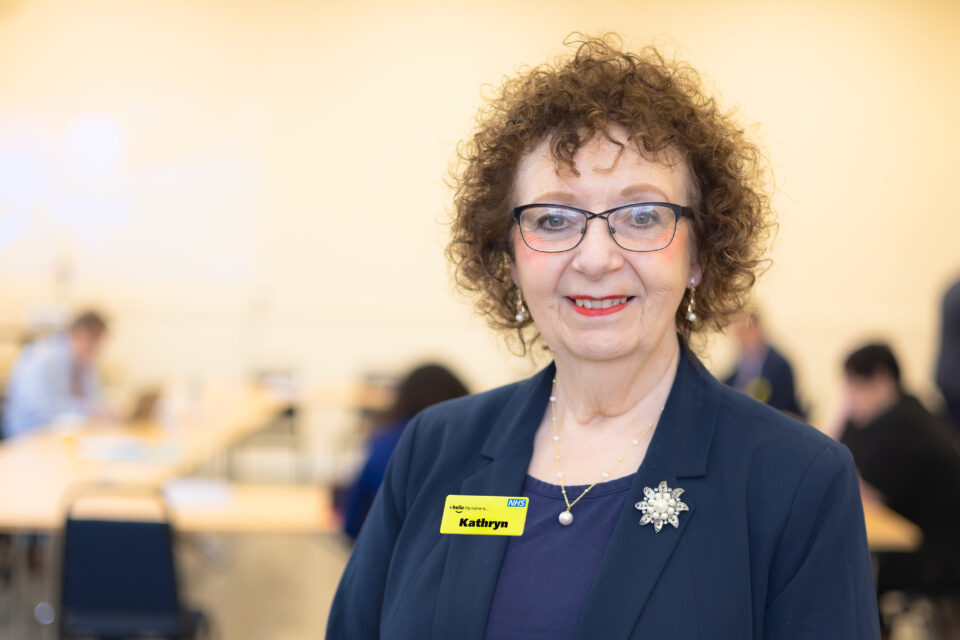
We’re now on Spotify… why not give us a follow. Our first one is a wellbeing podcast by Kate Wright, Senior Therapy Assistant, and Laura Barker, Clinical Specialist Dietitian. Take a listen to the wellbeing podcast.
You can follow us on:
Tackling racism within the trust: lots more work to do
In September, our chair, Kathryn Lavery, wrote to everyone in the organisation to discuss racism. She wrote in the context of the “Raising the Colours” movement, which attracted flags and graffiti in recent weeks. Trust Matters spoke with various leaders within the trust to understand better how the organisation is responding to Kathryn’s concerns.
Carlene Holden and Steve Forsyth helped to facilitate an open staff meeting which was held on 2 October, attended by over 70 people from all backgrounds. This provided an opportunity for people to share their concerns, propose ideas and ask questions. A number of colleagues voiced their experiences, and in many cases felt that nothing had really been done, or that the experience of raising racism had been ignored by local managers or team leaders. Others described how their manager had taken action and had addressed the need for changes with the whole team. Staff praised the trust for being open about the issues and for trying to work with partners to make sure staff felt safe at work.
Chief Executive Toby Lewis interviewed Prachi Goulding (our North Lincolnshire care group staff governor) as part of his regular video log to get an insight into the clinical and safety implications of racism. Prachi described how microaggressions, small acts that undermine confidence and cause hurt, make people question their place in the NHS. She also outlined how patients may be reluctant to come forward for care because they are anxious about a hostile environment.
Philip Gowland, the Board Secretary and Director of Corporate Assurance, presented a review of our 2024 acceptable behaviour policy to the board meeting in public in September. This explored whether all the ideas within the yellow and red card policy had been used. The board and the Clinical Leadership Executive, felt there was a lot more to do to embed the policy in every part of the trust. Thirty-eight discussions had used the policy since launch, with one red card issued. The policy is to be relaunched, with new communications and an easy read version, and linked directly to racism incidents reported on Radar.
Toby Lewis told us that link is very important. He said:
“The reporting route of Radar is so important. Colleagues in the Race Equality and Cultural Heritage staff network, as well as senior leaders, are tracking every single such incident, and we will look to ensure everyone has a meaningful, proportionate and consequential response. It is possible to be too tolerant.”
He outlined recent discussions with the Trust People Council, the importance of considering antisemitism as part these issues, and the intention for the board in November to revisit the Seven Point Anti-Racism Action Plan, launched late in 2024. He added:
“I am anticipating that we will keep all of those actions, many of which are really starting to be effective, but we need to consider how all of us can be anti-racist, as allies not bystanders. It is not enough to just ‘not be racist’.”
Racism at the trust
49 racist incidents reported on Radar (patient on staff) over the past 5 months.
The factual information below is taken from actual experiences reported by staff, both of comments made to them, and in discussion about whether they feel anything will be done. The information has been discussed at the leaders’ conference, the Trust People Council, and within the open staff meeting. It is important to recognise what happens in real life within our trust.
Examples of racist incidents
“You f*****g black c**t”
“I hate f*****g p***s”
“These are the people raping children and white British women”
“P***i b*****ds”
“You black c**t, get your dirty hands off me you black c**t”
“You have a horrible, disgusting name, f**k off back to where you came from”
“You f*****g black b*****d”
“Stinking n****r go back to your country where you belong”
“I’m going to smash your black head in”
“You are a black f*****g b*****d”
“F**k off you black s**g”
“F**k off you p**i b*****d”
“Black b*****ds”
“Get me my food now you f*****g n****r”
“Go back to where you came from”
“As a black woman one of the things that is important to me is the hair on my head. While I appreciate the curiosity that people may have about this there is an unsaid rule about not touching without permission.”
“To hear staff talk about race and immigrants coming to take their jobs and hearing their views of exclusion really stuck with me. I chose to leave the team.”
“Racist abuse dismissed – no point raising it, they won’t do anything about it.”
“Only colleague in the team denied flexible working.”
“I found solace that there was someone else who looked like me who started the time as me but sure enough we both started feeling some type of way.”
“If you raise a concern you will be labelled an aggressive black woman.”
“Indian nurses are better than black nurses.”
Lead NHS research site for phase two of Royal Foundation-funded study
A key part of promise 28 is extending our research work and creating partnerships to bring investment and employment to our communities.
A perfect example of this is the announcement of The Royal Foundation Centre for Early Childhood expansion of the Alarm Distress Baby Scale (ADBB) study following overwhelmingly positive early results.
The ADBB is a tool used by health visitors in routine checks to promote infant wellbeing. The study is being led by the Institute of Health Visiting in partnership with Oxford University.
The ADBB is an observation aid, focusing on a baby’s social behaviours such as eye contact, facial expression, vocalisation, and activity levels to help practitioners and families better understand the ways babies express their feelings. Providing support at this critical time, when babies’ brains are developing faster than at any other time in their lives, can have a life-long impact.
The study has now been extended to include 8 more sites, with our trust chosen as the lead NHS research site. This means that babies, children, young people, and families in our communities will benefit by having their health visitors trained in ADBB and engaging in research. It also raises the profile of the health visiting profession giving our health visitors growing experience of leading, participating in and delivering innovation and research, a key part of promise 28.
The ADBB study has been funded by The Royal Foundation Centre for Early Childhood.
Read the full report on the Grounded Research website.
Open staff meetings this Autumn
Come along and meet Toby our Chief Executive and some of the directors at our next series of open staff meetings.
These meetings are for all colleagues and a great way to hear about key topics in our trust.
Here are the dates, times and locations:
- Friday 31 October, 9am to 10am, Microsoft Team meeting.
- Friday 31 October, Midday to 1pm The Atrium, Elizabeth Quarter, Scunthorpe.
- Monday 3 November, 1:30pm to 2:30pm conference room, Swallownest Court, Rotherham.
- Wednesday 5 November, 3:30pm to 4:30pm, Microsoft Teams meeting.
- Friday 7 November, 1:30pm to 2:30pm main dining room, Mulberry Ward, Scunthorpe.
- Wednesday 12 November, 8:30am to 9:30am, Single Point of Access conference room, Opal Centre, Doncaster.
- Wednesday 12 November, Midday to 1pm conference room, Honeysuckle Lodge, Doncaster.
Microsoft Teams meetings: Join via the calendar on Microsoft Teams, via the “Meet now button” go to the dropdown then “Join with an ID” or go to Microsoft Teams join a meeting.
Knocking flu for 6
We are well on our way to knocking flu for 6 with the help of cricketing legends Joe Root and Ryan Sidebottom, Rotherham United’s goalie Cameron Dawson, and Isa Guha ex England world cup cricketer and broadcaster, who are supporting us with our campaign this year. The campaign has caught the interest of NHS England too.
We are leading the way nationally with our flu vaccination uptake… what an achievement. Well done to everyone who has had their flu vaccination!
In just over four weeks we have managed to vaccinate 1,934 colleagues, volunteers, students and bank staff. Not had your flu vaccine yet? Then don’t wait, flu is circulating now in our communities. The vaccine takes around 10 days for immunity to take effect so the sooner you have the vaccine the better protected you and your loved ones will be.
As a thank you for having your flu vaccine, we have been holding prize draws of £50 every week We’ve had 36 lucky winners so far. To see the list of lucky winners on our intranet staff page (staff access only).
DejaFlu it could be you
Everyone who has their flu vaccine will be entered into all the weekly draws and you could be a winner.
The sooner you have your vaccine the more chances of winning. Winners are selected at random from electronic staff record (ESR).
Flu is a very serious virus which can cause complications for your vulnerable family members and loved ones. Protect those around you by having your flu vaccine. It really is the best defence we have.
Ways to get your flu vaccine
Staff Portal
You can book via the Staff Portal on the intranet. We know that not all of you are able to get onto the Staff Portal, especially colleagues who work in estates and facilities, so planned clinic sessions will be shared with your line managers who will then let you know.
Roving vaccinators
To make it easy to get your flu vaccine, there will be roving flu vaccinators going into services, work bases, and attending trust meetings.
Attending your flu vaccination
Make sure your upper arm is exposed or easily accessible. Avoid wearing long sleeved garments or tight sleeves that cannot be rolled to the top of your arm as there are no private areas in which to partially undress in these locations.
If you have your flu vaccine elsewhere, please tell us
If you have your flu vaccine at your GP, a pharmacy or a previous employer then please tell us so that we have a record of colleagues who are vaccinated. You can record this on the Staff Portal now. If you have a health condition and are eligible for a free flu jab from your GP, you should have this because you are more at risk of becoming seriously ill with flu.
Check out our latest staff videos. If you have a loved one and would like to help us in our flu campaign please get in touch by emailing rdash.rdashcommunications@nhs.net.
Protect your loved ones and avoid the flu!
Grab your free flu jab now and protect yourself, protect your loved ones, protect your patients.
Staff survey
We should all be respected and valued, engaged in making the NHS the best that it can be.
We should also feel safe and confident about raising concerns over patient safety and the national staff survey gives us vital information about this. We want to hear the voice of colleagues in all 23 directorates, influencing their line manager, directorate management team, and the Clinical Leadership Executive and Board of Directors.
If you haven’t filled in your survey, please do so at your earliest opportunity.
Your responses are kept confidential, and you remain anonymous. Once you have completed the survey your responses go straight back to IQVIA, our independent survey provider, which will collate the information on behalf of our trust. IQVIA only provide results where we have received over 10 responses per team.
Look for an email or letter from NHS Staff Survey at IQVIA, because they send regular reminders. If you haven’t then please contact leanne.young2@nhs.net who will then contact IQVIA.
When you return your completed survey, you will have the opportunity to be entered into a prize draw, with the chance of winning up to £500. Winners will be picked at random on a weekly basis by our survey provider (IQVIA) and, with your consent, your name will be shared with the trust so that we can give you your prize. There are 5 prizes of £500 and 10 prizes of £50 up for grabs. We will also be giving out hampers to the team in each directorate with the highest response rates.
£500 winner
Congratulations to Veronica Maxwell who has won £500 simply by completing her survey. Veronica said:
“This is amazing news, thank you so much. I’m absolutely over the moon.”
Changes brought in
Last year’s NHS Staff Survey gave us vital information about your concerns and how you feel about your work and our trust.
You said we needed to improve engagement and employee experience because you didn’t feel you could recommend the trust as a good place to work. In response to this we have reviewed our distinguished service awards to thank colleagues for their dedication to our trust. We brought in the real living wage, a commitment under promise 25 to support our lowest paid colleagues. We also improved the accessibility of our staff networks, with colleagues having the opportunity to get involved as part of the learning half days.
We have taken steps to enable colleagues to thrive at work by promoting reasonable adjustments. We have also reviewed our Flexible Working Policy and supporting health, wellbeing, and managing sickness policy, offering training sessions to managers. You said that there were fewer career development opportunities and an unhelpful appraisal process.
We have acted and promoted our apprenticeship opportunities as part of promise 9. We have also taken steps to Invest in our leaders and first line managers through our Leadership Development Offer and the First Line Manager Development Programme and are due to launch our Clinical Leaders Development Programme later this year. We also launched our Line Manager Resource Hub, a central hub for essential line manager information. We are also revising our approach to training needs and developing a brand-new appraisal framework, launching in 2026.
Take a look at our results by directorate to see differences in people’s experiences by searching the intranet for “League table response rates 2024”.
Our shining stars
Celebrating the best of the best is what our Shining Stars are all about.
Personally chosen by Kathryn Lavery, Chair of the trust, our Shining Stars are given to colleagues and teams who have already received an award in their care group and backbone services.
They have been handpicked for shining the brightest and showing clear evidence of living our values of passionate, supportive, open, caring and safe, reliable and progressive.
Let’s see who received this accolade from Chair Kathryn Lavery in September.
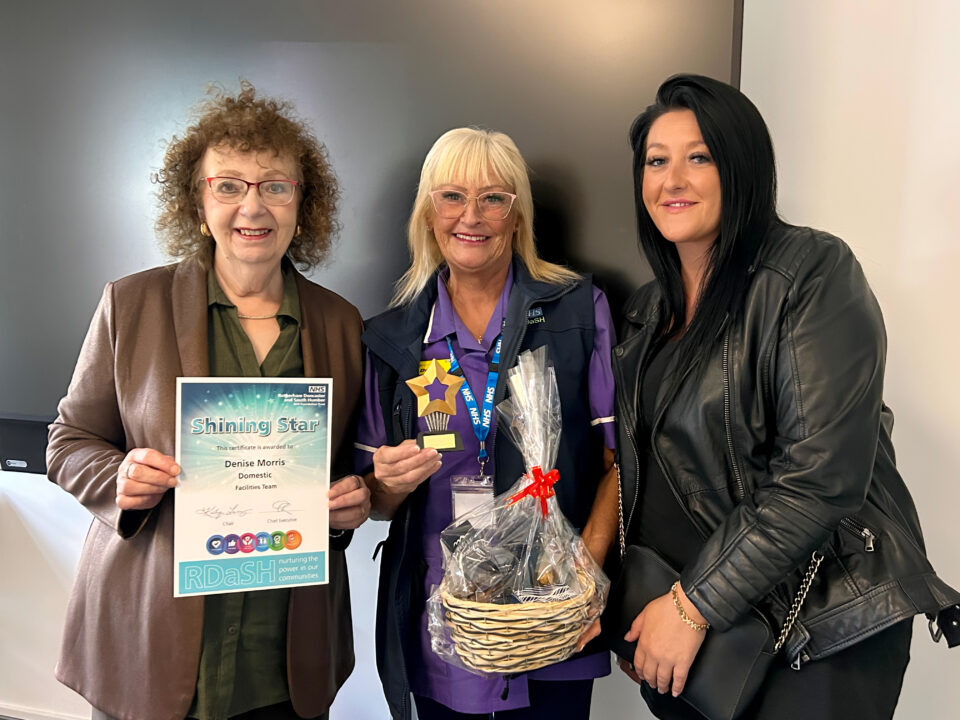
Denise received her award on return from holiday and wasn’t present when her team received theirs. The team received the Shining Star award for going above and beyond in providing a consistent service to staff and patients. Always willing to help and travel to different locations to keep areas covered. Domestic services have also received thank you emails where these colleagues have been covering due to staffing shortages, thanking them all for their support and hard work, and making a clear difference in cleanliness standards.
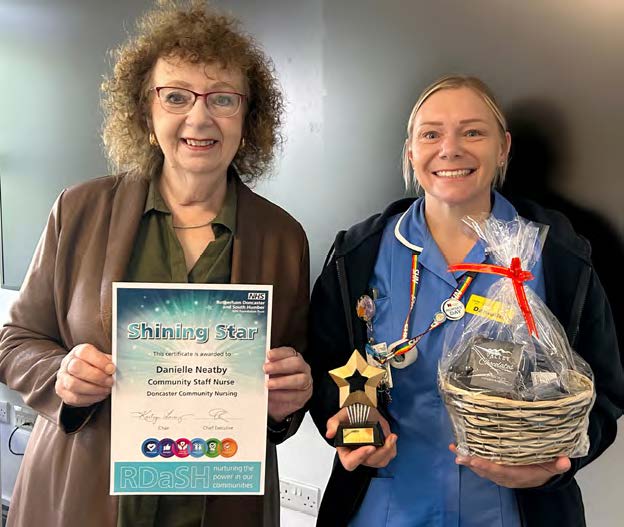
Danielle received her Shining Star for truly going above and beyond for an elderly gentleman who was a patient for many years. When his health deteriorated quickly, and he couldn’t be left safely in his own home causing him some distress, Danielle took everything in her stride. She spent many hours with the patient and his family searching for different options for him. Reassuring and supporting him with packing his belongings to move into residential care and making sure he had the things that mattered to him, reminding him of home and giving him the greatest comfort on his move. All this made the transition as smooth as possible. The time Danielle spent with him had a great impact and the patient will be forever grateful for the time and patience she showed to him.
Could you or your team be our next Shining Star?
To be in the running you need to have received an award in your care group or backbone service first. You can find all these awards on the Staff Portal on the intranet
North Lincolnshire news
Elizabeth Quarter update
This autumn, our services in Scunthorpe will be moving into office space in the Elizabeth Quarter in Scunthorpe town centre.
Elizabeth Quarter is a newly developed three-storey building owned by North Lincolnshire Council, featuring a ground-floor café and reception area, with modern office spaces on the first and second floors, covering approximately 1,250 square meters. With the Imaginarium restaurant opening soon in the Elizabeth Quarter offering a relaxing space away from the busy work environment.
We are leasing the office space for 15 years and the space will be used for clinical consultations, patient appointments, and as the headquarters for the Community Mental Health and Talking Therapy workforce.
Here is a timeline of the moves:
- Monarch House relocation starting on 3 November and 10 November 10
- The Ironstone Centre services moves starting 17 November
- Market Hill Talking Therapies’ move starting on 1 December and 8 December
Toby Lewis, our Chief Executive, said:
“Having invested in St Nicholas House last year, and with big plans for Great Oaks in the year ahead, the news that the Elizabeth Quarter development will become a final part of our ‘Scunthorpe triangle’ is a huge boost for local NHS staff.
“This is a top-class facility and will help us to support teams to bring the best care to the town and to local villages. As wait times come down below four weeks, we want to see care in North Lincolnshire’s NHS go from strength to strength.
“We have a partnership with the local authority, GPs and the voluntary sector, and most importantly with local residents. Opening the Elizabeth Quarter facility is a big boost to our morale and a tribute to joint working.”
The council’s decision aligns with its commitment to economic growth and renewal, ensuring value for money for local taxpayers. This new development is a key part of our promise 19 to respond to the specific needs of the communities we serve.
Great Oaks’ improvements
The improvement work at Great Oaks in Scunthorpe has started and will see newly refurbished patient wards and staff areas.
The detail below highlights the key milestones in the scheme.
- Works have started on Laurel ward to prepare the ward for co-location. This will provide safe areas for patients and distinct separation for adults and older adults.
- Phase 2 works will progress on Mulberry ward. All activities will be moved to Laurel ward and Mulberry will be handed over to the building team.
- Works will progress on the ground floor of Great Oaks, this is the reception space and the main corridor, including meeting rooms, kitchen, offices, Multifaith room, clinic rooms. The space will be handed over to the builders and the whole area will be vacated.
There will be a new canopy for reception located at the side entrance.
There will be some disruption to some of our services and our access to the building for the duration of the scheme. Those services from other care groups who use our Great Oaks meeting rooms have been contacted directly.
If you require any further detailed information on the scheme, please contact Louisa Redhead, Continuous Service Improvement Manager, or Vicky Clare, Director of Nursing.
Baton of hope
Joining hundreds of people on the Baton of Hope 2025 tour as it visited North Lincolnshire was Lou Redhead, Continuous Service Improvement Manager.
Lou was chosen to represent our trust as one of the Baton Bearers, proudly carrying the Baton of Hope through Scunthorpe’s Central Park on 15 September.
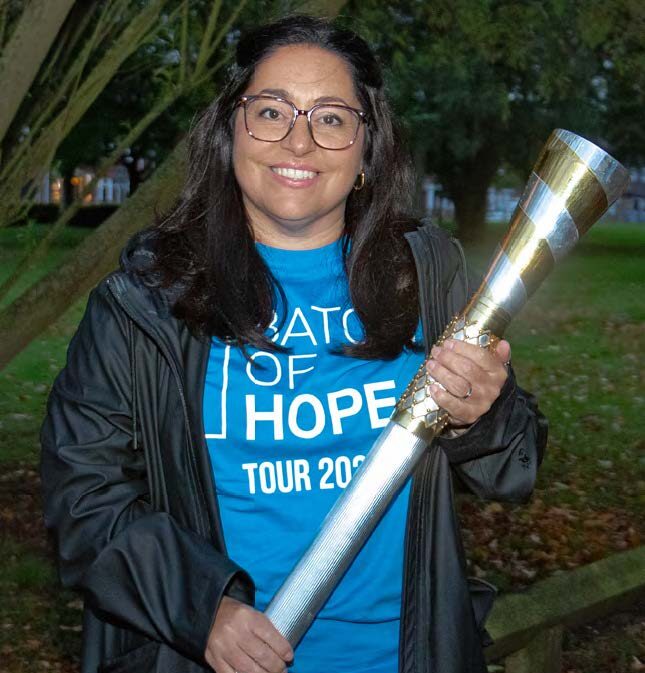
The Baton of Hope represents the journey of hope, with the aim of opening up a national conversation about suicide, reducing stigma and creating unity with the suicide prevention community. The Baton of Hope UK tour started in Blackpool on 1 September, calling through many towns, cities and regions including North Lincolnshire and then on to London.
Fancy volunteering as a driver?
We’re looking for volunteers in North Lincolnshire to drive patients to and from their appointments and to help their families visit them in hospital.
In return we’ll refund travelling expenses and for those who volunteer for more than four hours in a row, will receive a hot meal and a hot or cold drink.
If you enjoy driving, meeting new people, and want to give something back to your community, this could be the perfect opportunity for you!
For general information about volunteering please email rdash.volunteers@nhs.net.
Diwali celebrations
After our Christmas decoration competition last year, we committed to do the same for Diwali.
Diwali is the Indian “festival of lights” and is an annual homecoming and bonding time for families and for communities and is celebrated by Hindus, Sikhs, Jains, and some Buddhists.
To celebrate Diwali across our trust, we held a Diwali decoration competition.
All the decorations were amazing. We want to thank everyone for creating them.
All the decorations were judged, and the winners are: With Me in Mind and Zone 5 to 19.
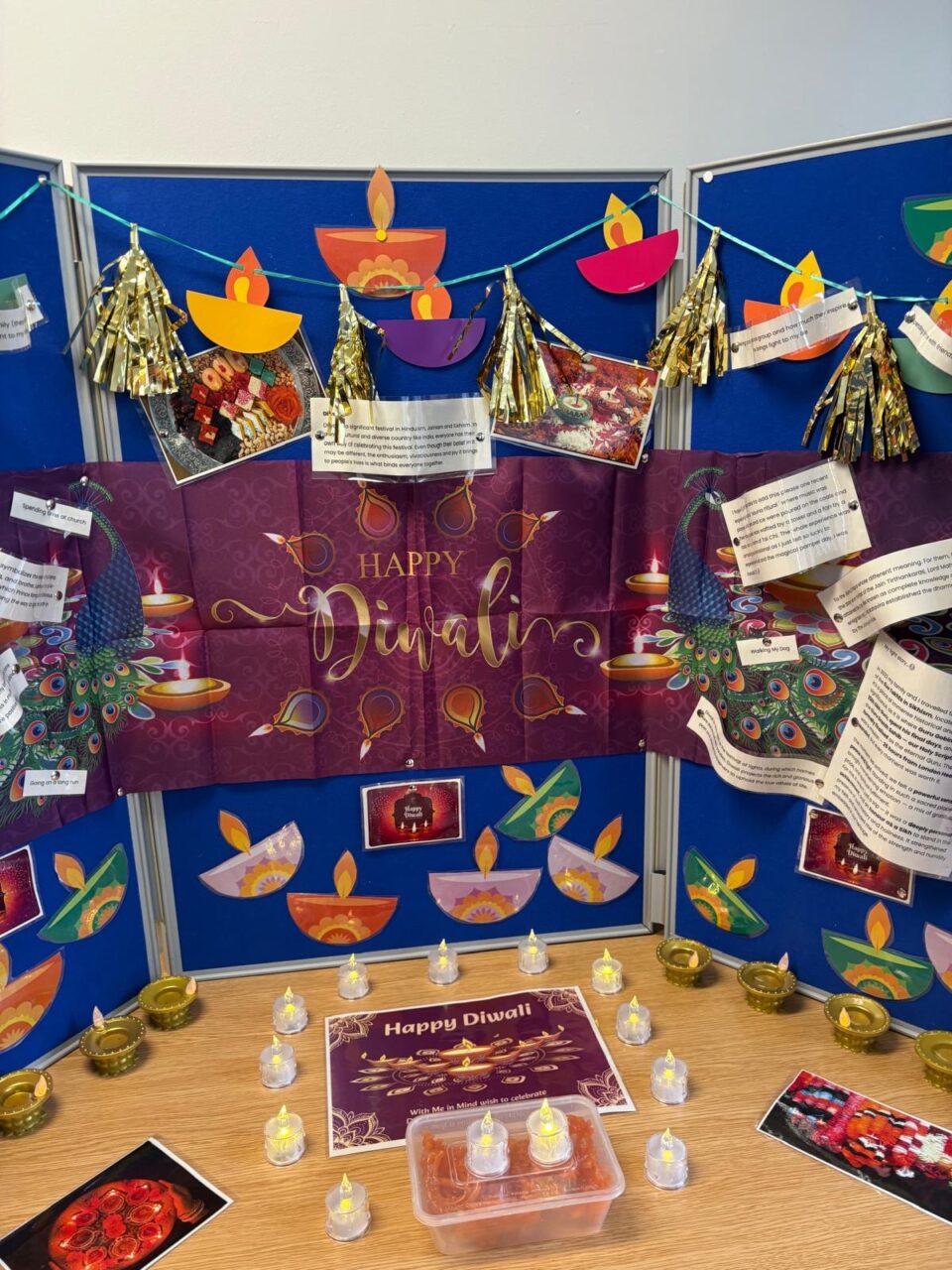
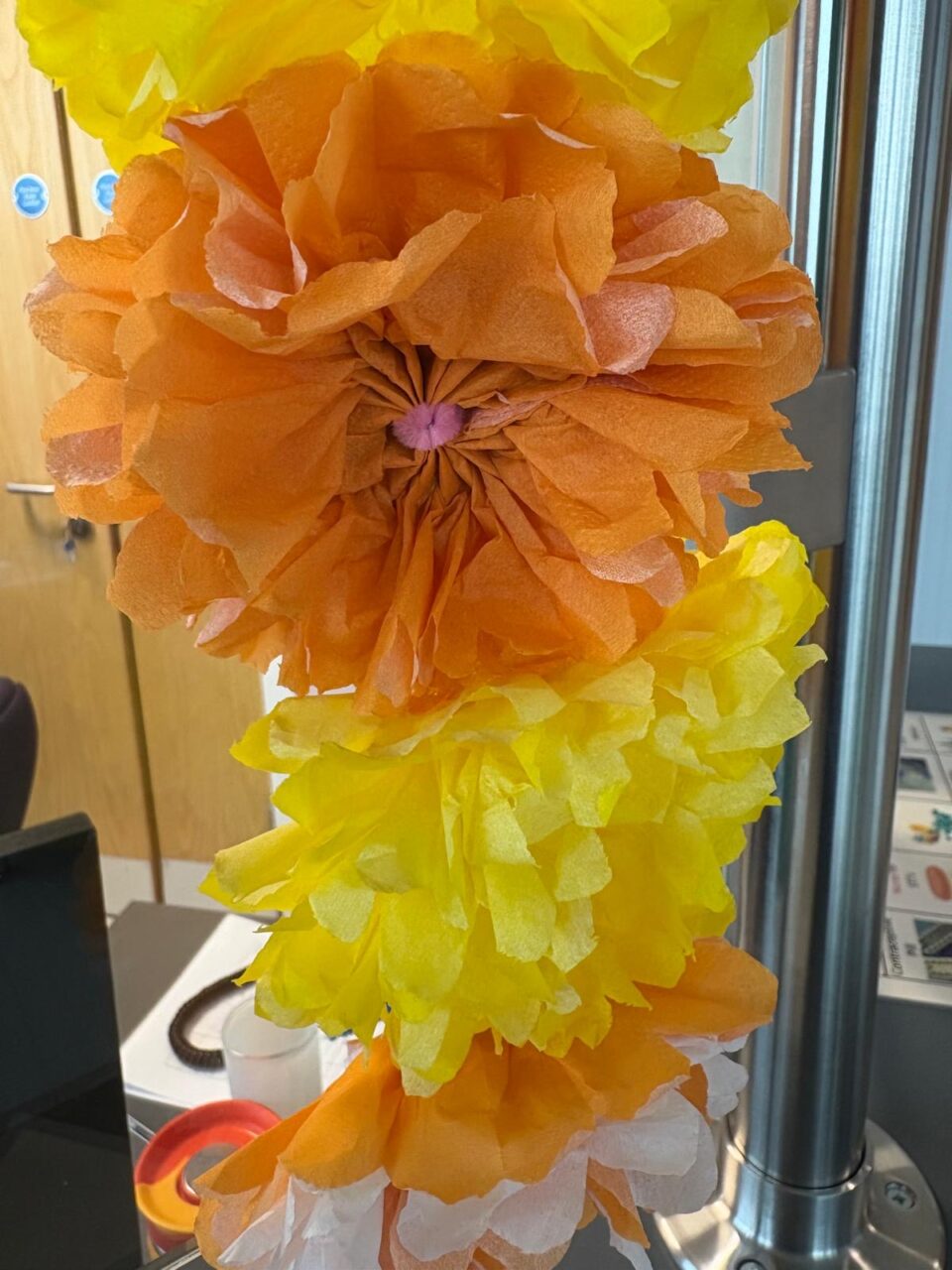
Healthcare support worker conference
Recognising the important role that our support workers do and the value they bring to supporting patient care, we held the support worker conference specifically for this group of colleagues.
Over 100 colleagues from across the trust attended AESSEAL New York stadium on 1 October, to hear about development opportunities available to them in the areas of social work, allied health professionals and apprenticeships.
Autism training was provided by Dr Victoria Hughes and those attending listened to a patient story from Samantha Smith of S62 community group highlighting the importance of the people we serve.
There were a range of breakout sessions for delegates to attend to gain more insight to the work of the trust and included neurodiversity, talking therapies, legacy mentors and much more.
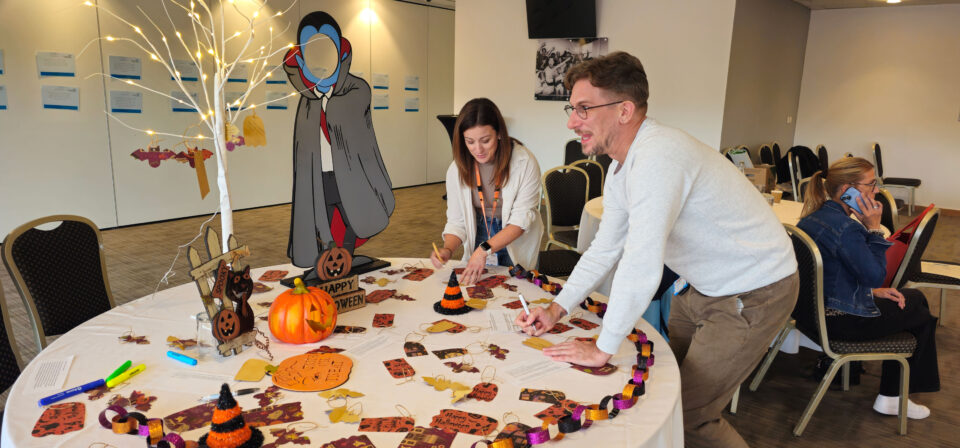
Leaders’ conference 2025
Our Leaders’ Conference, held at the end of September in North Lincolnshire, brought together leaders from across the organisation to reflect, connect, and prepare for the future of the NHS.
The day opened with Dr Diarmid Sinclair, Chief Medical Officer, who set the scene for a day focused on change, innovation, and leadership. Delegates took part in workshops exploring the NHS Long Term Plan and new ways to drive improvement and innovation.
We were delighted to hear from a fantastic line-up of speakers, including Dr Andy Knox (GP Partner and Interim Medical Director, Lancashire and South Cumbria ICB), Ingrid Gerbino (Virginia Mason Institute), and our own Carlene Holden and Izaaz Mohammed, who led a powerful session on anti-racism and the role of leaders. Chief Executive Toby Lewis delivered a thought-provoking insight on “looking outside from inside”.
The afternoon featured a Partnership Panel, chaired by Jo McDonough, Director of Strategic Development, with contributions from Andy Knox, Ingrid Gerbino, Simon Beeton (NAViGO Chief Executive), Sarah Lacey (S62), Anthony Fitzgerald (South Yorkshire ICB), and Victoria Lawrence (North Lincolnshire Council).
It was an inspiring and energising day, leaving our leaders motivated and equipped to take forward new ideas and strengthen collaboration across our system.
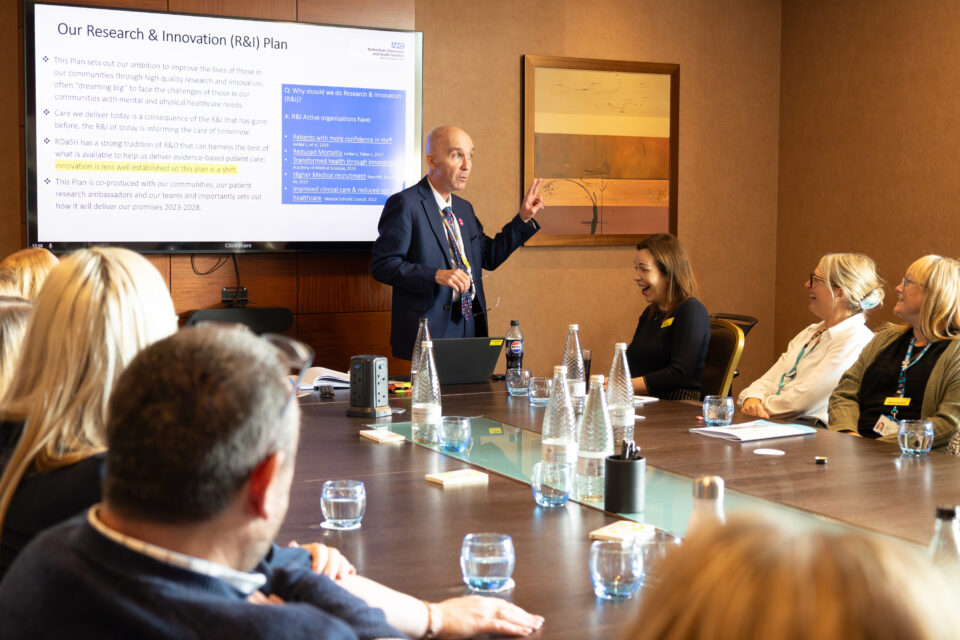
Innovation and quality improvement
Promise 28
Extend the scale and reach of our research work every year: creating partnerships with industry and Universities that bring investment and employment to our local community.
At the leaders’ conference we focused on innovation, building on our Research and Innovation Plan.
The Research and Innovation Plan sets out 6 research priorities, and it launches our Innovation Revolution. Every part of our trust has to lean into innovation, building on long traditions of quality improvement.
We need to borrow from our best and use our passion to try and make a difference for our patients, carers and our communities.
Innovations don’t have to be large scale. Small changes and improvements can make a big difference to what we do. We also know that some innovations won’t work and accept that it is okay to fail. We learn as much from failure as we do from success.
To encourage and reward innovation we ran a quality improvement (QI) poster competition over the summer. We asked individuals and teams across the trust to develop posters showing what problem they were trying to solve or something they wanted to improve, how they did it, if it worked or not and what impact it had on patient care or processes.
We received 67 entries into the competition which was a fantastic response. The posters were judged by a panel of multi-disciplinary leaders led by our Chief Medical Officer Dr Diarmid Sinclair. There were 4 categories as follows:
- most valued poster, as voted for by delegates at trust leaders’ conference, £500 prize
- most impactful project or proposal, £500 prize
- best study or project design, £500 prize
- best quality improvement poster at the trust 2025, £5000 prize
View all the quality improvement posters.
Congratulations to the top 10 posters chosen by the judges which were:
- From waiting lists to wellness: accelerating trauma recovery
- Diabetes continuous glucose monitoring pilot
- The IGLOo trial: sickness absence and sustainable return to work pilot
- Restraint reduction during psychiatric intensive care
- Flow neuroscience: exploring alternative intervention for depression
- Using poetry to promote attachment moving towards personalised care
- Improving the quality of occupational therapy admission and care planning process
- Closing the Clozapine
- Communication gap: a patient safety priority
- From surviving to thriving: a getting advice quality improvement project
The winners of the 4 categories were:
Most valued poster, as voted for by delegates at trust leaders’ conference, £500 prize, Flu Campaign, Communications team, Backbone Services.
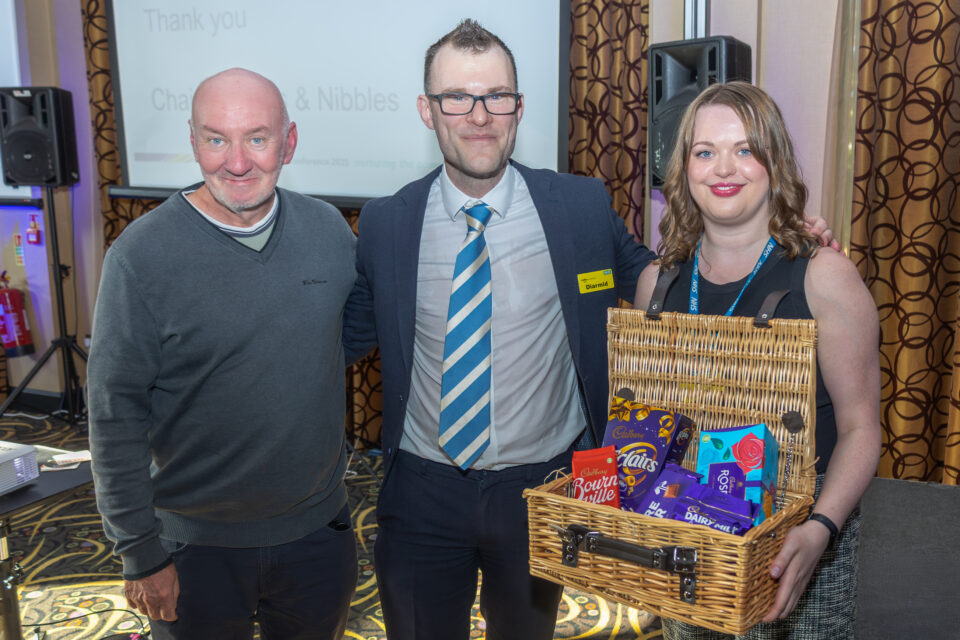
Most impactful project or proposal, £500 prize, From surviving to thriving: a getting advice quality improvement project, Emily Goodrick, Getting Advice Service, Children’s Care Group
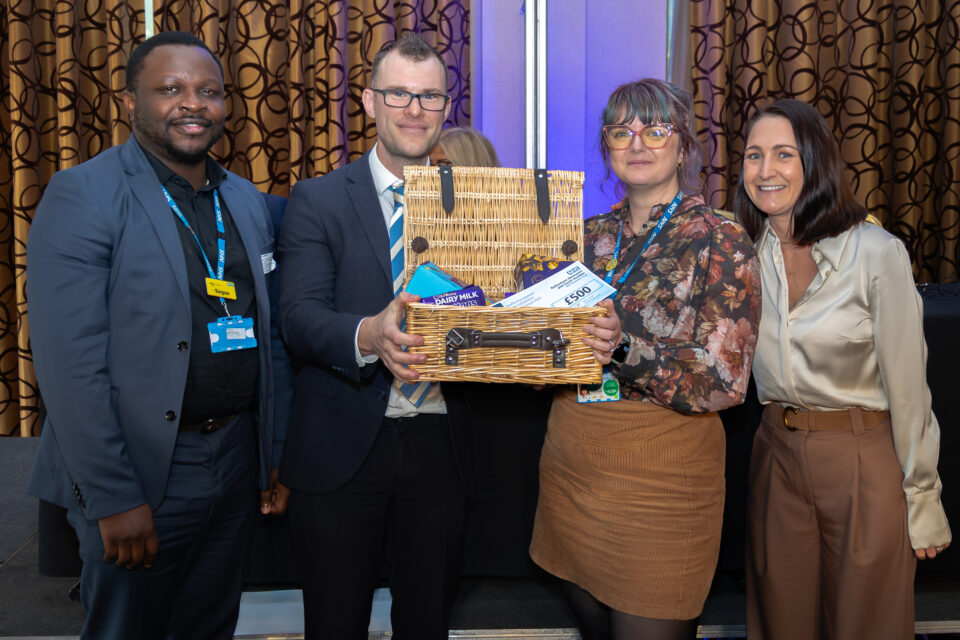
Best study or project design, £500 prize, Restraint reduction during psychiatric intensive care, Eleanor Green, Steve Kellett, Martin Hobbs and Chris Gaskell, Rotherham Care Group
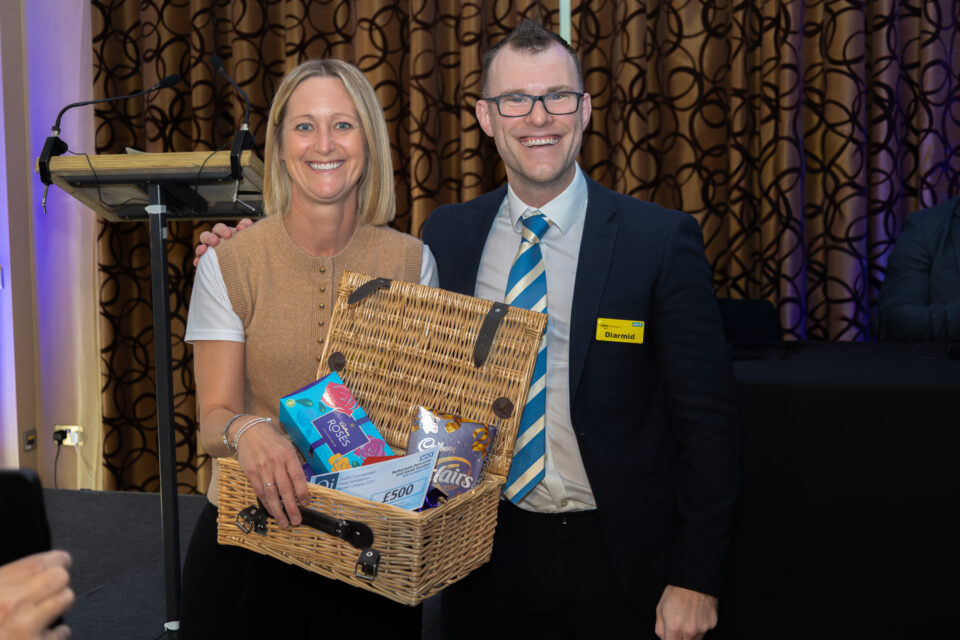
Best quality improvement poster at the trust 2025, £5000 prize! Diabetes continuous glucose monitoring pilot, Kate Asquith and Laura Outhwaite.
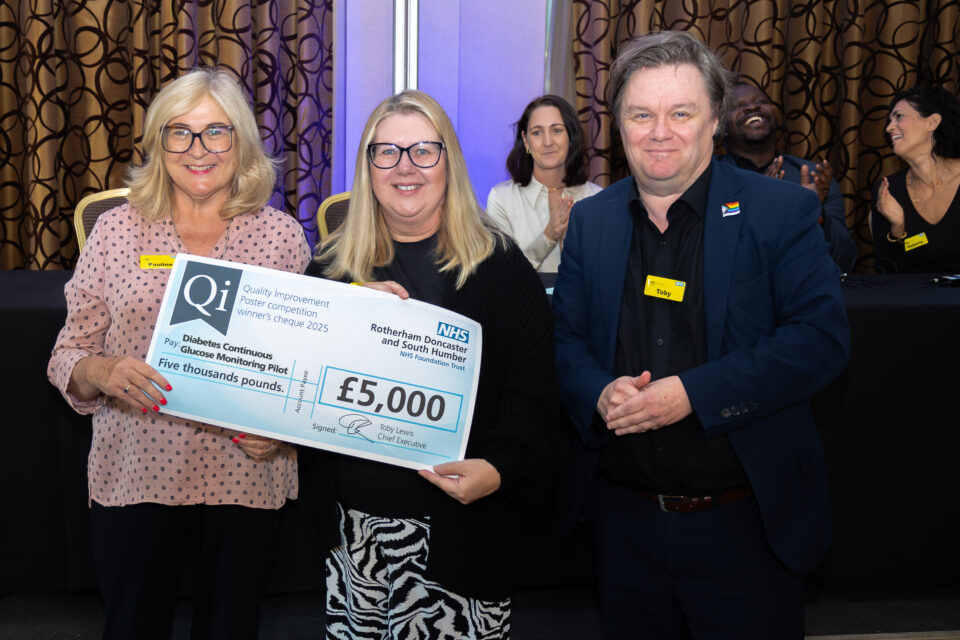
Congratulations to them all
The quality improvement posters will be going on tour around some of the trust’s bases from October until December. Look out for them and get your thinking caps on about what innovations you could make in your service ready for the quality improvement poster competition 2026.
Celebrating speciality and associate specialist (SAS) doctors’ week
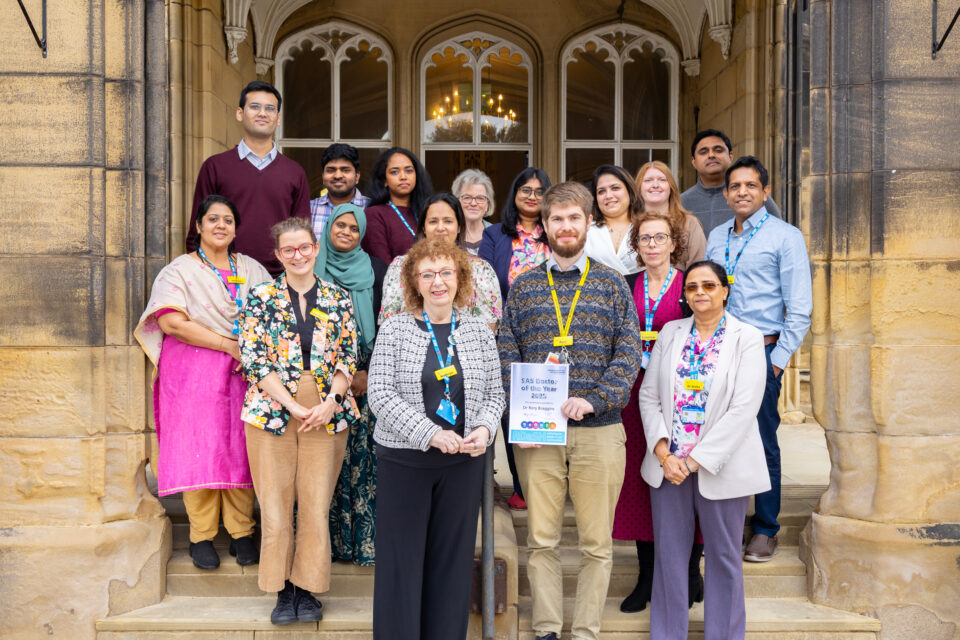
During speciality and associate specialist (SAS) Doctors’ Week (October 6 to 10) we took the opportunity to celebrate our specialty and associate specialist doctors and the incredible work they do.
Specialty and associate doctors are an essential part of the workforce and have a focus on patient care, and are regularly involved in teaching, leading service development and research.
Throughout the week, we held events and activities to showcase the work of our SAS doctors.
On 9 October, the SAS Conference took place, celebrating the valuable contributions of SAS doctors. Chair Kathryn Lavery and Deputy Medical Director Dr Heighton recognised the significant role these doctors play in the trust. The event included various sessions centred around Freedom to Speak Up, reflective practice, and inspirational sessions with fellow SAS colleagues, complemented by team-building activities. Participants shared overwhelmingly positive feedback, noting that the experience greatly enhanced their morale and contributed meaningfully to their professional development.
Specialty and associate doctors felt appreciated and enjoyed the SAS conference, particularly the reflective practice and team building exercise, which provided an open space for them to express their thoughts and feelings.
Well done and congratulations to Dr Rory Braggins, who works on the Tickhill Road site, for being awarded the SAS Doctor of the Year at this year’s SAS away day and conference event held by our trust at St Catherine’s House.
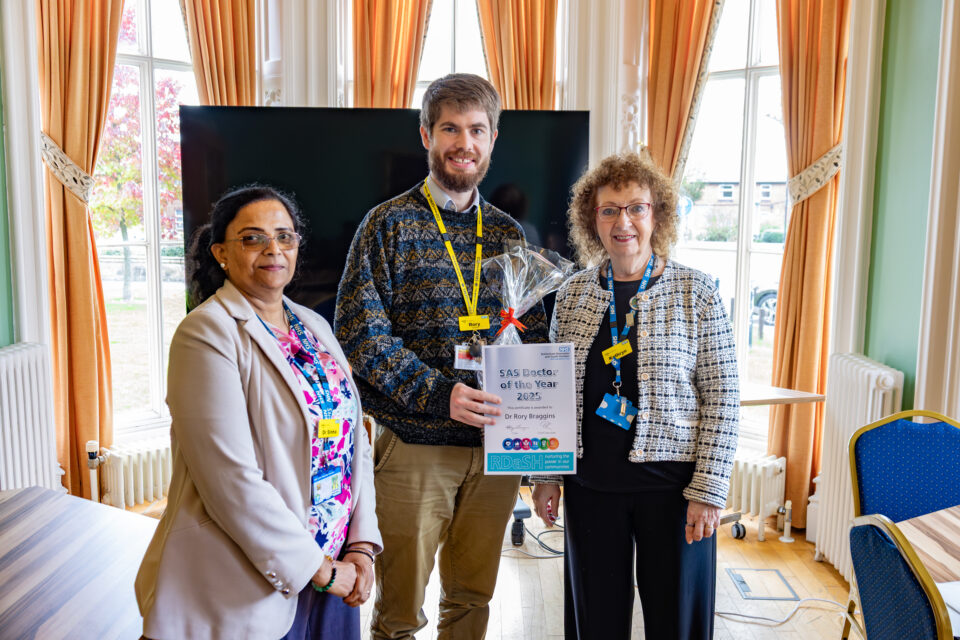
Allied health professionals conference
We held our allied health professional (AHP) conference on October 14 as part of the national Allied Health Professional Day, at the Holiday Inn in Rotherham. Pictured are conference organisers and guest speakers. Our focus was on Quality and Safety and how AHPs are key to this agenda.
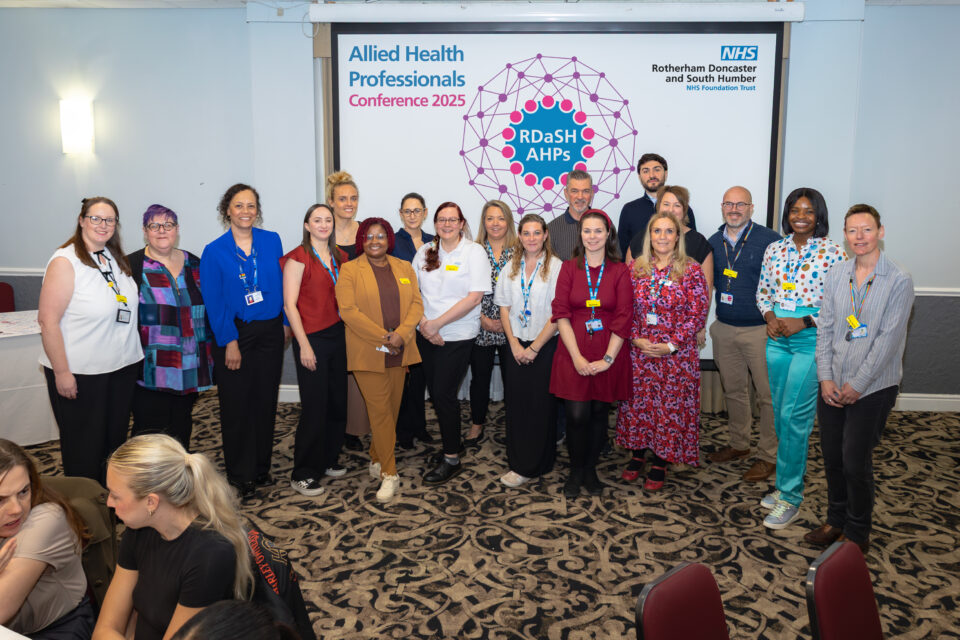
We heard from a wide variety of speakers from both mental health and physical health services. All speakers were from the trust representing the knowledge and experience in the trust.
Topics included:
- quality improvement
- allied health professionals in green plan (promise 27), veterans (promise 11), and poverty proofing (promise 6)
- outcome measures
- eating and drinking with acknowledged risk
- research
- patient safety incident response framework
- responding to a national alert
- poverty proofing in podiatry
Those present listened to an amazing patient story from John who had a stroke in 2022 and whose recovery journey has seen him have services from 10 out of the 14 different allied health professionals.
There were stands from trust services and partners (education and learning, health improvement team, health and wellbeing team) as well as community partners (including People Focused Group, and Rotherham Parent Carer Forum, S62).
Allied health professional workforce has grown 10% in last year and is split in half between physical health and mental health services.
New unit launches
We’ve launched a new high dependency rehabilitation unit (HDRU) in Doncaster to support people with complex mental health needs.
Initially the unit, which launched on 1 October, is based at Coniston Lodge, on the Tickhill Road site in Balby. However, this is only a temporary home and come December or early January it will relocate into the nearby former Coral Lodge, under the new name of Phoenix.
This development is helping us to deliver our promises, and is part of promise 19, which aims to reduce the number of patients sent to out of area beds for treatment. The unit serves as a bridge between acute inpatient services and community-based support, facilitating effective discharge planning and coordination with external services to support continuity of care. The 16-bed unit is manned by a range of experienced and highly professional staff, and the opening was overseen by Nurse Director Meagan McNaney, who explained:
“The overarching objective of the high dependency rehabilitation unit is to offer holistic therapeutic care for patients who require more structured and intensive support than that provided in the community or other inpatient settings.
“Our core aim is to deliver compassionate, evidence-based treatment that acknowledges the profound impact of trauma on mental health. By embedding trauma-informed principles into all aspects of care, we strive to create an atmosphere of trust, safety, and empowerment, recognising each patient’s unique history and resilience,” she said.
“Our multidisciplinary team collaborates closely with patients and their families to develop personalised rehabilitation plans aimed at restoring autonomy, enhancing coping skills, and promoting long-term recovery.”
Patients can be referred to the new service via staff in acute mental health inpatient wards, forensic units, open rehabilitation wards and via community teams. Anyone wanting more information about the high dependency rehabilitation unit should contact Meagan McNaney by email m.mcnaney@nhs.net or call her on 07779 995 067.
UK’s first NHS-embedded clinical trial site
We’ve teamed up with Clerkenwell Health, specialists in mental health clinical trials, and launched the country’s first fully NHS-embedded commercial research site for brain and mental health conditions.
The new site located in our existing Grounded Research facility is run in partnership with our clinicians gives NHS patients earlier access to cutting-edge investigational treatments.
The Doncaster site serves a population of over 1,300,000 across South Yorkshire, a region with historically limited access to clinical trials. It revitalises underused NHS infrastructure, creates local jobs, and builds long-term research capability by upskilling NHS staff.
The launch links with our strategic promise 28. It also directly supports the UK Government’s ambitions outlined in the Lord O’Shaughnessy review, Medicines and Healthcare Products Regulatory Agency trial reform agenda, and 10-Year Health Plan, which call for faster, more inclusive, and more efficient clinical trials across the NHS. It further aligns with National Institute of Health Research and NHS priorities around health equity, access, and workforce development.
To know more about this work please contact our Grounded Research team on email rdash.groundedresearch@nhs.net.
Rotherham news
The Willows launches
We’ve launched The Willows at The Woodlands in Rotherham.
The Willows is the new name for Glade and The Brambles wards now that they have merged into one. This development supports our promise 18 of supporting the best models of therapeutic inpatient care.
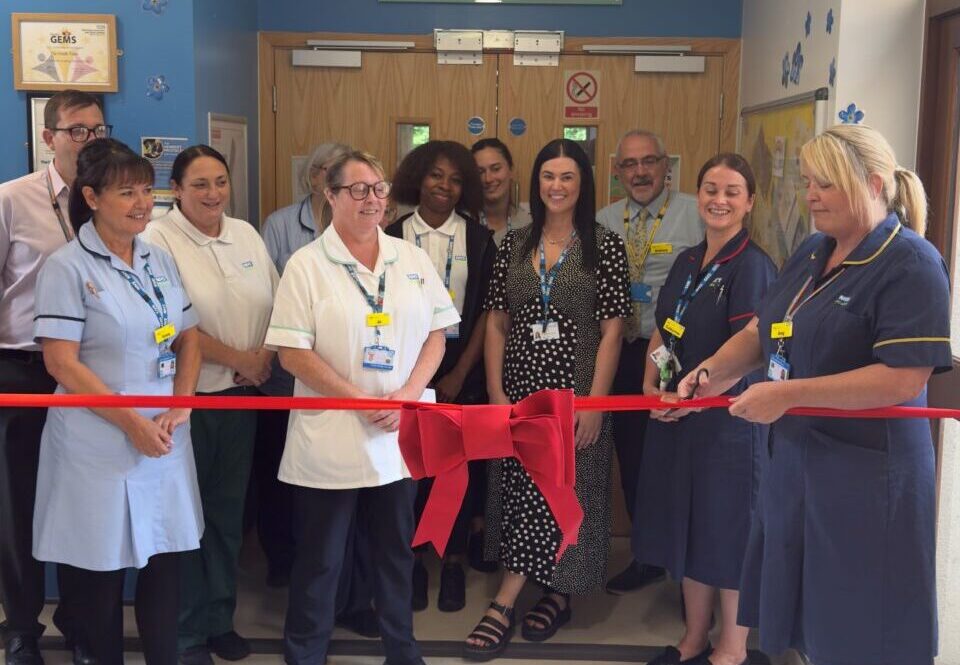
Money and debt advice to supporting our patients
This month we focus on the Citizens Advice Rotherham and District and how it is helping our patients with money and debt advice as part of promise 6, poverty proofing. As part of promise 6, we have made money and debt advice part of our patient pathway. This means that anyone who uses our services can access their local Citizens Advice by direct referrals by our staff. The Citizens Advice organisations in North Lincolnshire, Doncaster and Rotherham are also providing dedicated time at our trust, including appointments on sites across the trusts. In 5 months working with Citizens Advice 187 people have been supported, benefitting from a collective rise in income or debt write-off of over £243,000.
Here are just a couple of case studies (the person’s name has been changed):
Ben's case study
Ben’s care coordinator referred him to Citizens Advice Rotherham and District (CARD) straight after his discharge from the ward. Ben had lost his accommodation in the months after he was detained under section. Ben hallucinates when he is having a spike in his underlying psychotic symptoms.
Ben needed CARD’s help to make sense of the benefit applications he had made when he lost his job. The applications were made a short time before he was detained. This meant that benefits agencies rang Ben while on the ward and spoke to him about his claims, by telephone assessments. This was done without Department of Work Pension (DWP) realising that they were speaking to a person who was so unwell at the time that the person thought that they had scanned and emailed documents.
Citizens Advice Rotherham and District supported Ben to secure his right to resubmit for a higher rate of benefit and support from DWP. CARD referred Ben to a specialist service that could help him appeal the wrong zero award decision for Personal Independence Payment (PIP). Ben shared with CARD that he was now getting support category Employment Support Allowance and fully engaged with the PIP appeal. Ben shared that the help received means he feels much more positive about his prospects and capacity to cope.
Cathy's case study
A nursing assistant referred Cathy to Citizens Advice Rotherham and District (CARD) for help with her managed migration from a legacy benefit to universal credit. Cathy had at that point been under section for about 5 months.
In that time, Cathy was selected by Department of Work Pension (DWP) to move to universal credit. The deadline for this was around a week and a half after the referral. Cathy was seen on the ward with the support of our staff who know her well and have earned Cathy’s trust. Cathy remains very unwell. It was clear she would not be able to speak to DWP or be directly involved in any way.
A Citizens Advice role by Bea
My name is Beatrice Lee, and I’m a Generalist Advisor at Citizens Advice Rotherham and District. I come from a healthcare background, having spent several years in a variety of roles across the health and social care sector. Supporting people has always been at the heart of what I do, and joining Citizens Advice felt like a natural step. A place where I could continue to empower others, helping them understand their rights and access the support they’re entitled to.
In my role, I work both in our local office and lead our dedicated service at the trust. This service supports both patients and trust staff by providing clear, reliable information about their rights, and helping them navigate complex issues with confidence. Whether it’s information, advice, or hands-on support, we tailor what we do to meet individual needs.
Core to my role are skills like empathy, communication, problem-solving, adaptability, and teamwork. I always take the time to understand each person’s situation, recognising that many people we support are going through incredibly tough times. My approach is sensitive, compassionate, and flexible, ensuring every client feels heard, respected, and supported.
What I love most about my work is seeing the moment a client goes from feeling overwhelmed to feeling empowered, when they realise, they’re not alone and that there are clear steps they can take. It’s incredibly rewarding to know that the advice we give can lead to real, positive change.
Citizens Advice Rotherham is deeply rooted in our local community, and I’m proud to be part of an organisation that makes such a meaningful difference in people’s lives.
Citizens Advice sessions and information for colleagues
During 2025 and 2026, Citizens Advice is also holding money and debt sessions for our colleagues as part of the learning half days. This will cover things such as key benefits, eligibility and how to access for patients, for example pensioner credits and universal credits. Keep checking the app and intranet for more details.
How to refer a patient to Citizens Advice
When you speak to a patient or carer, for example at referral stage, assessment, review of appointment or care, discharge planning as part of the multi-disciplinary team you need to see if they have any household money or debt problems. If they have, you can refer the person to Citizens Advice direct, using the form for the patient’s area which can be found on the intranet.
Where to record on SystmOne
The “RDaSH Generic Information template”. This is available trust-wide, which can be found within the red triangle, patients’ details, please see below:
The “RDaSH MH Assessment template”. This can be found in the Personalised Care Launch Pad (orange triangle), under DIALOG+ section, within the “RDaSH Mental Health Assessment and Review”, under financial.
To know more about this work, please contact Ray Hennessy, Deputy Director of Strategic Development, via email ray.hennessy@nhs.net.
Spotlight on volunteers
Promise 3
Work with over 350 volunteers by 2025 to go the extra mile in the quality of care that we offer.
Meet the Promises team
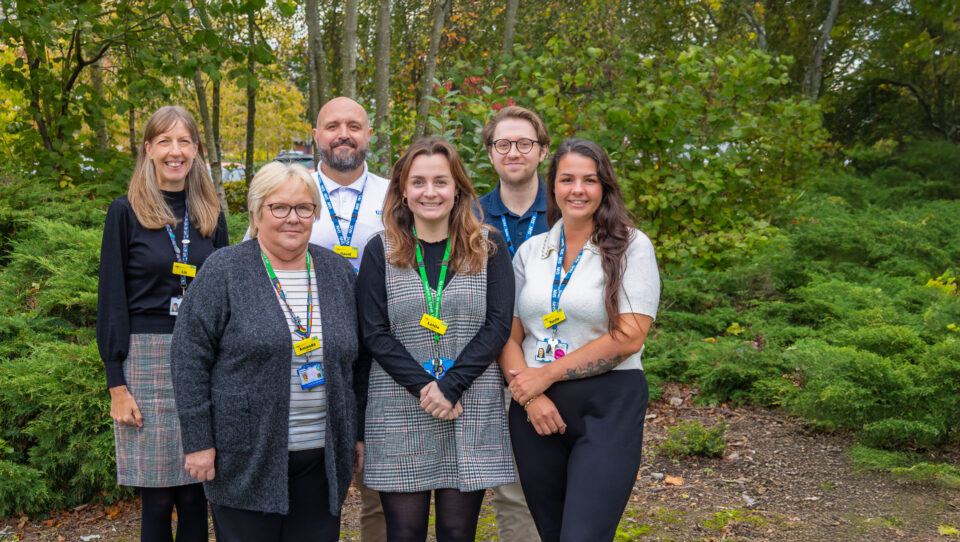
Encouraging people to come and volunteer with us is a key commitment of promise 3.
Volunteers bring many benefits and add that extra something to the quality of care for our patients.
Here in this edition, we shine a spotlight on our volunteers and great things they are doing across our organisation.
Firstly, let’s introduce you to our new Promises team which plays a key role in supporting our volunteers Overseen by David Watson, Promises Lead, the team includes Lottie Weinberg and Liz Tibbett, Volunteer and Involvement Coordinators, who work closely with services to recruit, onboard, and embed volunteers in meaningful roles.
Terrie Batty, Admin Support, ensures smooth coordination, while Joseph Warner, Project Support Officer, drives delivery across many initiatives. Amanda Ambler, Promises Practitioner, oversees the delivery of Promises 1 and 2, including peer support on the wards and support for unpaid carers in both the community and among staff.
We’re especially proud of James Waterworth, Promises Support, who began as a volunteer and is now a valued paid member of the team, a true example of volunteering in action.
Let’s meet some of our amazing volunteers:
Menik's story
When mature student Menik Dona finished her master’s degree she knew she wanted to work in healthcare and improve people’s lives but lacked experience.
So, the 39-year-old applied to volunteer with us and 5 months later she secured a permanent job.
Menik, originally from Sri Lanka, headed to the UK to study at the University of Northampton after working in healthcare roles in her homeland, especially during the COVID-19 years.
After completing her studies in business analytics, she started volunteering in our Estates and Facilities teams. Initially she was volunteering in administration work but could soon see the team needed her data skills and put them to good use, gaining the vital experience she needed.
A few months later she saw a job for a development support manager based in Rotherham, applied for the role and was successful. Menik said:
“I’d like to thank the Estates and Facilities team for giving me the opportunity to volunteer. I was helping with administration tasks and digitalising documents in the department. I saw I could use my knowledge further and supported the team with analytics. Five months later I was looking at internal job opportunities at the trust and saw the job I’m now employed in.”
Menik started the role in May this year and said:
“I love my job. I work with a wonderful team, and I am doing what I love, working in process and service improvements. I’m so happy about it all.
“I would say to anyone if you get an opportunity to volunteer just go and do it and go the extra mile,” she added.
“It gives you the experience you need to then apply and hopefully be successful in gaining a job.”
Find out more about Menik’s story.
Jo Perkins, Continuous Service Improvement Lead, said:
“Menik has been a fantastic addition to our team. She stepped seamlessly into her new role and has quickly become an integral member of the team, always willing to share her knowledge and skills. Her time as a volunteer demonstrated her strong commitment to working with us, and during the interview process, she was able to draw on that experience to support her application. Combined with her qualifications and previous professional experience in Sri Lanka, Menik was well-positioned to take on this opportunity.”
Gaenor's story
Gaenor Jackson has also recently secured a job, as the Patient Flow Administrator at our New Beginnings detox and rehabilitation unit in Doncaster.
“Things got hard for me during lockdown. I started drinking heavily, and at the time, I didn’t fully realise how much harm I was doing to myself, physically and mentally. I was in a bad place, and it got worse quickly.
“Eventually, I reached out to Aspire for help. That was a big step, but it honestly changed everything for me. They gave me the tools to stop drinking, but more importantly, they helped me understand why I was drinking, and what it was doing to my mind and body. It was a place where I could be completely honest and not feel judged. The staff were amazing and supported me through it all.
“After being alcohol-free for a year, I wanted to give something back. I trained to become a mentor because I wanted to support others the way I’d been supported. I started helping at New Beginnings, sitting in on groups, offering support, just being there for people. Because I’ve been through it myself, I could really relate to what others were feeling. I could say, ‘I get it,’ and mean it. And being able to show people that recovery is possible, is such a good feeling.
“Alongside that, I started volunteering as a receptionist at New Beginnings. I’d worked in admin before, but I’d been out of work for a while, and it felt like the right way to ease back in. Volunteering gave me structure again. It helped build my confidence, gave me new skills. I met loads of great people, got involved in events, and started enjoying life again. Volunteering gave me so much more than I expected. It wasn’t just something to fill my time, it became part of my recovery. It helped me feel connected, like I was part of something that mattered.
“After just three months, a job came up at New Beginnings. I went for it, and I got it. Now, I’m in a role where I get to be a part of somebody’s else’s journey even if it is on the admin side.
“I’m thankful for every part of this journey. Giving up alcohol and choosing to volunteer changed my life.
“So, if anyone’s thinking about volunteering and is unsure, I’d just say go for it. You honestly never know where it might lead.”
Elly Sanchez, Admin Team Leader at New Beginnings, said:
“From day one as a volunteer Gaenor showed dedication, initiative, and a genuine desire to contribute. Whether it was taking on tasks with a positive attitude, learning or bringing fresh energy into the workplace, their presence made a real difference. It was clear they weren’t just ‘helping out’.
“Seeing that commitment pay off and watching Gaenor step confidently into a paid role was an incredibly proud moment. It confirmed that the time she spent volunteering wasn’t just valuable to us, as a service, but it was valuable to her too.
“It is a privilege to be part of Gaenor’s journey, and I have no doubt she will continue to succeed in her role and inspire others.
“Having a good volunteer on your team is always a gift, but watching that volunteer grow, thrive, and ultimately move into paid employment is something truly special. It’s a reminder of what can happen when passion meets opportunity.”
Jessica Wood, Volunteer Photographer
Jessica (21), of Snaith, East Riding of Yorkshire is a volunteer with the Communications Team, helping take photos at events, usually at weekends and in the evenings.
For Jessica, who graduated with a degree in photography from Sheffield Hallam University, it’s vital work experience, which she is hoping will help her clinch a dream job.
Jess said:
“Volunteering with the trust has been such a rewarding experience and a wonderful opportunity to explore the field I hope to build my career in. I’m so grateful for the mentoring and encouragement from Carl Jarvis and everyone in the Communications team. I truly enjoy helping in any way I can and would wholeheartedly encourage anyone to get involved.”
Lynn Hall, Head of Communications, said:
“It’s brilliant working with our volunteers. We have a range of volunteers helping us to write stories for our magazine and take photos at events. With Jess it’s fabulous to see how she has grown in confidence covering events with us. Over the last few months, we’ve seen Jess come out of her shell and become a very confident young woman.”
Lillian Berry, Photography and Community Engagement, volunteer
Lil volunteers with the Communications team, using her passion for photography and social media to highlight the work of volunteers across the trust.
“It’s a great chance to use my creative skills to engage with patients and showcase what volunteers do,” she says.
From filming videos to attending events, Lil enjoys meeting new people and developing her editing skills, while contributing to projects that offer a refreshing contrast to her day job.
Carl Jarvis, Graphics and Communications Manager, said:
“Volunteering within the Communications team offers valuable hands-on experience, helps build a professional portfolio, and demonstrates to future employers the diverse and transferable skills needed in today’s working world.”
Sharon Clarke and Sabrina, the therapy dog volunteer
Spreading smiles and bringing comfort and joy to colleagues and patients are Sabrina, the gentle St Bernard volunteer dog and her owner Sharon Clarke.
Sharon who volunteers with Therapy Dogs Nationwide, visit wards with Sabrina to help brighten the atmosphere with cuddles, smiles and moments of calm in busy clinical settings.
Staff feedback has been heartfelt, with comments like “you’ve made my day” showing just how powerful these visits can be.
Sharon said:
“Sabrina goes for the cuddles, and I think staff do too. She just loves it, we’ve done a staff questionnaire recently. I analysed the data and some of the information is quite emotional, and what staff say about the visits. It’s an interesting way to capture what people think, for example ‘you’ve made my day’ and if I hear that once that’s lovely. It’s very rewarding for me, obviously its time well spent. If you can bring a little stress relief or just make people smile, then that’s good. People have very stressful jobs, and when Sabrina enters the room, it alters everything. She brightens the atmosphere, and it becomes a little more relaxed and they take a few minutes to talk to her and give her a cuddle. It’s nice and pleasant and she loves it.”
Ann Llewelyn, Activity Support Volunteer
Ann began her volunteering journey as one of our foundation trust members and then became a governor. She then stepped into volunteering to connect directly with patients and staff in the acute services at Tickhill Road site.
She now supports ward activities, helps with arts and crafts, quizzes, and even escorts patients to church services. Her favourite part is being on the wards, lifting spirits, and making people laugh.
“I’m a people person, it’s about showing up, listening, and making a difference. Depending on the circumstances there are a lot of lonely people. That’s what I enjoy meeting these people making them laugh and I turn up the following week.”
David Watson, Promises Lead, said:
“Ann has split her time volunteering across different roles. As a governor helping at a strategic level, she has spent practical time with me looking at how systems work and how to evolve and improve the way we do things. In a more compassionate and engaging way she has spent time with people on the wards doing various activities, providing light relief and supporting to people. Ann is a great volunteer and a real asset.”
Otis, the therapy dog
We’ve also pets on our volunteer register including Otis, a Golden Retriever, who regularly visits Great Oaks. When Otis comes to visit, he doesn’t bring words or skills, but a stillness, presence and cuddles.
When Otis appears our staff see joy, sparkles in tired eyes, and see smiles on faces, simply because Otis is visiting.
But what does it mean to Otis? Lots of cuddles, strokes, ear tickles and companionship. He also gets sneaked the occasional biscuit.
Ellison from volunteer to apprenticeship
It just goes to show how powerful volunteering is to help achieve your life goals. Whether they be giving back to your community, your local NHS, meeting people, or helping you to get onto the first step on the career ladder, volunteering is a great way to do this.
Ellison Kirkland, who first started with us as a volunteer on the reception at Woodfield House, was successful in gaining an apprenticeship with the Primary Care Network and enjoying every minute of it.
Ellison said:
“I applied for an admin apprenticeship at the trust, but I didn’t have the experience. Lindsey who interviewed me suggested that volunteering would help me gain the experience I needed.
“I supported Trica on Woodfield House reception with getting the meeting rooms ready each day. I also helped with the identification (ID) badges for new starters, taking photos and adding information on to the system.
“I helped set up a system to make the ‘Hello my name is’ badges.
“I worked 3 days a week, Monday, Tuesday and Wednesday from 8:30am to 4pm. I got a meal voucher which included a drink and a meal in the Food and Drink Café on the Tickhill Road site.”
Tricia Holmes, Admin Assistant and Receptionist, said:
“Mentoring Ellison as a volunteer on reception was a pleasure and hugely rewarding. He showed enthusiasm and a willingness to do whatever was asked of him. I not only got know him as a person, I also found out what his ambitions and focus was, I supported him in the areas he needed developing to help him to succeed in the career path he wanted to go in or try. I was ecstatic when Ellison told me that he found an apprenticeship position with the Doncaster Primary Care Mental Health Hubs only based over the other side of the car park. It’s nice to see the fruits of my labour in supporting Ellison through his volunteering journey, thank you Ellison.”
Samantha
Samantha, who now works in our North Lincolnshire services, struggled with her own mental health for more than 15 years and the main cause for a severe decline in it was trauma she experienced in 2006. Since then, time has stood still, and she felt angry and disappointed with herself.
In 2023 Samantha began psychological therapy with the right therapist and began to feel stronger and ready to start something, more importantly she had begun to see a future. In January 2024 there was an opportunity to volunteer with Citizens’ Advice as an Expert by Experience in mental health. She signed up for it and never looked back.
“This was a role I embraced due to the good and not so good experiences I have had whilst under the care of mental health services and I saw it as an opportunity to work alongside the trust to enable change for service users and their support networks,” said Samantha.
“I and other volunteers were given to chance to get voices of patients, carers and the wider community heard, and we attended meetings, events and sat on interview panels with professionals from the trust.”
In January 2025 she became a volunteer with the trust and is still able to use her lived experience of mental health in this role. Samantha said:
“Volunteering has helped me personally because for a long time I believed I was useless, worthless, hopeless and living was a struggle. Volunteering has given me a purpose and a chance to live a life that is meaningful and one that I enjoy. I look forward to when I volunteer, yes, I get anxious and feel scared every time, but I love what I am doing.
“I now know I am not useless, but useful, I am not worthless, but I am worthy, and I am not hopeless, but I have hope,” she added.
“It’s given me confidence and I’m starting to believe in my own abilities.
“Finally, rather than being trapped in my own little world I am now able to see a clearer and more optimistic future. I can see the light at the end of a very long and dark tunnel. Volunteering has given me the confidence and experience that I would never have got elsewhere, and I am now in a paid job as a peer support worker.”
Nigel, volunteer in North Lincolnshire
The opportunity to do voluntary work came late in my lifetime when I retired in December 2024.
The question then to myself was, what could I do to maintain interaction with people and maintain a structured lifestyle. I attended a recruitment day in February 2025 and everyone welcoming and helpful and I thought this was where I would like to be. How could I fit in was my minor trepidation and the change of working environment was far and away from anything I had known in my previous 45 years of working. I had no need to worry. The biggest and best reason I have come to enjoy my time with the trust is to see first-hand the dedication and devotion of the staff at all levels and their kindness to me. Even the small things like people remembering your name means a lot. Each opportunity to volunteer is a new adventure and I meet so many talented people and get a glimpse of the valued work they do. The question I posed to myself of “should I volunteer?” has changed to “volunteering, why would you not”.
Praising our Great Oaks’ volunteers
We’ve several volunteers who help at Great Oaks and in North Lincolnshire. They are all appreciated for the excellent work they do.
We’ve also volunteers helping with our Great Oaks’ improvement work and they are doing an amazing job.
Lou Redhead, Continuous Service Improvement Manager in North Lincolnshire Mental Health and NHS Talking Therapies Care Group, said:
“Our volunteers have been brilliant and each of them offers us their support in a unique way. From a service improvement perspective we now work with a range of volunteers with both lived experience and life experience.
“They have supported new service developments and participated in engagement opportunities that have helped us to shape our services. They have supported improvement events and helped with the smooth running, ensuring participants are welcomed and can navigate venues.
“Our volunteers were an integral part of our flow neuroscience pilot where we offered eligible participants a new treatment for depression,” added Louise.
“They played a really important role in welcoming people to our clinics and helped them to understand what to expect at their appointment.
“Volunteers have helped us so much to get ready for our big estate improvement schemes at Great Oaks, ensuring that our building remained safe and secure while our removal teams and contractors were on site in our preparation stages.
“I could carry on listing the way our volunteers in North Lincolnshire help us every day, but the important point is that they are now part of our team, and we are grateful for their ongoing support, individualised offer and unwavering commitment to support the care group as we work hard to improve our offer to our patients and our community.”
Claire Wyatt
Claire, our Infant Feeding Lead, in our Doncaster Health Visiting team, recruits and trains breastfeeding support workers, who are all volunteers, in our Children’s Care Group.
The volunteers, usually all fairly new mums, pass on their support and expertise to brand-new mums needing help with breastfeeding.
Claire said:
“They are absolutely crucial. They are generally mums who have faced challenges so their insight to other mums going through similar situations is vital, even if they are just a listening ear about the challenges they face.”
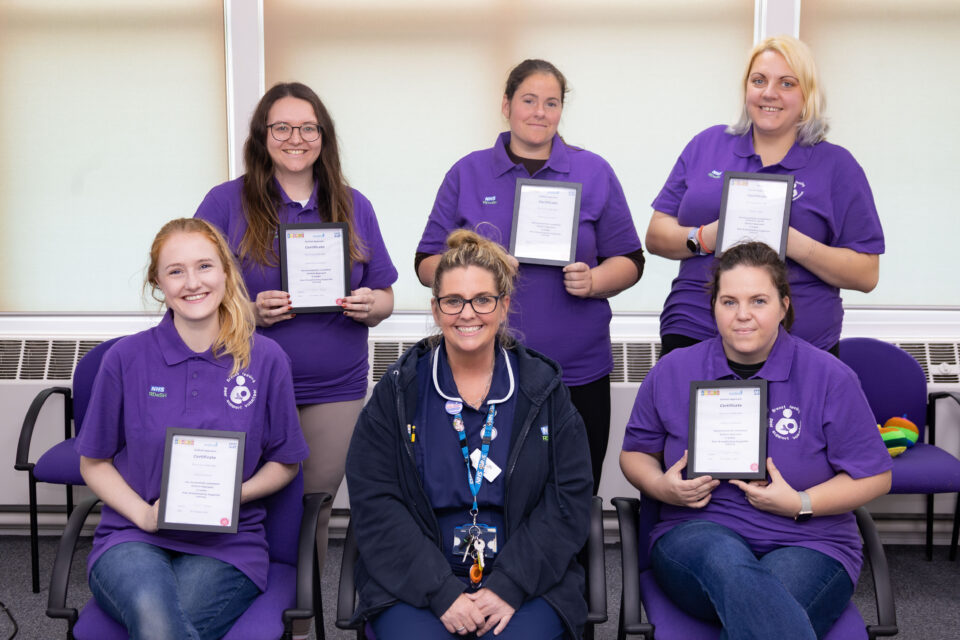
Nyah Escobar
Nyah started volunteering with the School Nursing team in Zone 5 to 19 in our Children’s Care Group. She’s been involved in making boards for information drop-in sessions, showing off her creative skills. She is also going to get involved with social media.
“I am looking forward to attending these drop-ins and school events in the future,” said Nyah.
“I’m also looking forward to growing the social media platforms of the team to help reach and expand their target audience.”
Line Manager Jayne Ashby said:
“Nyah has been like a breath of fresh air to the team. As a younger member of the team, she has been able to share her thoughts around how school nursing should look in 2025 and has helped to develop our social media platforms. She recently sat on the interview panel as we recruited to a staff nurse post bringing with her 2 great questions to ask our candidates.”
Helen Palfryman
Helen explained that she was given a volunteer and told she should be thankful as they wanted to be a physiotherapist and would be a great help to her exercise group.
Helen admits she was a little sceptical about having to manage another person. However, when she met Nazli, her volunteer, and she got involved with the group, Helen now doesn’t know what she would do without her. Helen said:
“The support side of things to begin with was not great but now we have a great support team behind the volunteers who we can turn to and that has been such a massive help for me.
“Nazli has integrated herself into our team and is just one of us now. She cannot do enough towards helping set the room up and she is always cleaning which really helps us, so our environment and equipment are always clean for the next group.
“Nazli goes out to welcome our patients to the group and is aware of any physical help they may need,” added Helen.
“Also, Nazli helps to make our patients feel included and supported throughout the two hours they are with us.
“I would recommend having a volunteer to anyone in any service and feel that there are many opportunities for volunteers to become a valued part of teams. They just need to be matched to where their interests lie.”
Mona Parks
Mona Parks has volunteered at our St John’s Hospice in Doncaster since 2019 and returned after Covid put a halt to her volunteering duties.
She worked in the NHS for 50 years before retiring and always loved working on the front desk of her workplace, helping people.
She explained:
“When my husband died at the end of 2018, I reduced my hours at work preparing for retirement in March 2020. I decided to volunteer one day a week at the hospice, initially returning to help the catering team. My duties have increased, and I now work two days a week, so now I also help put away incoming medical stock, keep the outdoor areas tidy, feed the squirrels and birds, and do any other jobs to help the staff.
“The hospice is a lovely place to volunteer. It has provided me with a purpose and has made a positive difference to my life. I love meeting new people, I like to feel useful and it’s brilliant being part of the great team at St John’s Hospice.”
Barry Martin, Ward Manager Inpatient Unit at St John’s Hospice, said:
“Mona plays an integral part in the care we provide at the Hospice. She does the little things which go unnoticed, and never seeks any praise or thanks, although we are extremely grateful for what she does. She helps with our ordering, catering and feeding of the Squirrels! We are very lucky to have her, and she is what we need to keep our hospice as special as it is. Thank you Mona, from all the staff at the hospice and our patients too.”
Sallyann (Sal) Lawton
Sal, one of our Cognitive Behavioural Therapy leads in Doncaster, works with volunteers in the Community Mental Health and Early Intervention in Psychosis teams and she thinks volunteers are essential.
“I have an experienced volunteer who has been with us for four years who help with the hearing voices group, and she has helped us to develop materials, deliver the group and is a huge asset.
“I’ve been working on three other volunteering roles too including social media and web content support, administration for volunteers to help us with service evaluations and promote the work we are doing in psychological therapies plus volunteers for group support.
“It’s really humbling when people give up their time to support NHS services,” she added.
“It’s something we should be grateful for plus they have more knowledge and experience in these roles than clinicians. They add to the service we offer to our patients.”
Bob Foster
Bob is part of our Volunteering team and currently helps with events, talking to the public and patients. Bob, who has had nine strokes, one of which left him visually impaired, was a former electronics engineer. He also had to surrender his driving licence due to his disabilities, and his relationship was destroyed, which led Bob to attempting suicide. Now he wants to use his experiences to help others.
“I believe everything in life happens for a reason,” he said.
“I have the knowledge of what it’s like to be very ill mentally and wanting to die every day for months. I can empathise with others who feel the same way. When you’ve been through it and come out at the other side, you know you can give others hope that they will get better too.”
Bob will also be volunteering with a new disabilities group which will be launching in the near future.
Lottie Weinberg, from the trust’s Volunteering team, said:
“Bob gets involved with volunteering and it really helps us, especially when he helps us at events, helping to engage with others.”
Kathleen Green
When Kath’s husband sadly died, she wanted to keep herself busy, so turned to volunteering with us.
Kathleen, aged 77, of Doncaster, said:
“I am not the sort of person to sit and wallow. I used to work with the NHS in a GP’s surgery as a counsellor. My first volunteering role was at Tickhill Road Hospital’s Magnolia Ward a neurorehabilitation unit.”
However, it wasn’t long before Kathleen was asked if she’d like to volunteer in the WellBean Coffee Lounge, also at Tickhill Road Hospital. Kathleen took up the offer and is still volunteering in the coffee shop, serving patients, their families and staff on a regular basis.
“I like being in the coffee shop,” said Kathleen.
“I get to see so many people. I get to talk to them, and some people find it really helpful to have someone to talk to.
“I get satisfaction from volunteering,” added Kathleen.
“I get to make use of my time and I feel like I’m wanted and valuable. I get self-satisfaction.
“I’d say to anyone, if you have time on your hands and you are bored with nothing to do, you could be really helpful and valuable to someone else and appreciated for what you are doing. Why not use your time better than just sitting around and volunteer.”
Julie Laggan, Catering Manager, said:
“It’s a great asset having a volunteer. It helps them and helps us. Kath is a big help for Julie who runs the café, especially when it’s busy. It’s win-win.”
Georgia Grainger
Georgia’s manager Helen Stansfield said:
“I am a team leader within the 0 to 5 Doncaster Health visiting team, alongside North Lincolnshire 0 to 19 service we have recruited volunteers in line with the promise 17 work to support young children and their families to become school ready. One of the volunteers Georgia attended a school readiness event in the local community, she was an amazing support to the school readiness nursery nurses and engaged in conversations with families with regards how they can become school ready. Thank you.”
Volunteer with us and…
- Learn new skills.
- Meet new people.
- Make new friends.
- Gain experience.
- Help others.
To see how you can get involved or become a volunteer email rdash.volunteers@nhs.net or visit our volunteering page.
Recovery Games at the beach
Our Aspire Recovery Games, held in early September, were a huge success, with more than 800 competitors taking part, the largest amount ever, all celebrating that recovery is possible.
Held at Hatfield Outdoor Activity Centre, visitors included Mayor Rotherham, Cllr Rukhsana Ismail and Civic Mayor of Doncaster, Cllr Tim Needham.
Participants had loads of fun on it’s a knockout type inflatables, in the lake and in the festival of colour. Entertainment on stage included Karen Parry, headlined by Slipmatt and a collection of community artists.
Freedom to Speak Up and raising concerns
Freedom to speak up is about anything that gets in the way of doing a great job and giving our patients the best possible care.
Everyone, no matter where they work or in what role, should feel comfortable raising worries or concerns about things that could affect the care we provide to our patients.
Please do not wait for proof about your concern. We are here to explore any risk and where possible prevent the risk from happening.
James Hatfield is the trust’s freedom to speak up guardian and he will ensure that anyone who does speak up will be supported and thanked. You will not be disadvantaged in any way. We can only fix something if we know about it. James can be contacted by:
- Phone: 07836 680 975
- Email Freedom to Speak Up: rdash.ftsu@nhs.net
- Email James: james.hatfield@nhs.net
How to raise a concern If your concern is urgent, please report it through Radar or to your line manager. You can talk to our freedom to speak up champions, we have over 76 across the organisation. You can find a list on the intranet by searching Freedom to speak up champions. Anonymous concerns by using a form available on the intranet, just search “raise a concern”. James Hatfield, Freedom to Speak Up guardian by:
- Phone: 07836 680 975
- Email Freedom to Speak Up: rdash.ftsu@nhs.net
- Email James: james.hatfield@nhs.net
Here are some pledges of support from colleagues:
“I pledge to be compassionate to my colleagues when they have a concern because I know how important it is to feel supported in the workplace.” – Tara Bentley, Admin Assistant, Children Young People’s and Families Senior Administrator.
“I pledge to champion Freedom to Speak Up across RDaSH, standing with those silenced by discrimination. I will advocate for fairness, equity and inclusion and support protection against detriment. Ensuring every voice is heard because speaking up safeguards dignity, strengthens teams, and ultimately protects the safety and care of every colleague and patient.” – Tinashe Mahaso, Strategic Development Manager.
“I will actively encourage my colleagues to speak up, listen with compassion but respond with empathy and respect. My aim is to strengthen a culture where kindness and inclusion is a part of everything we do.” – Kerry Newall, Support Time Recovery Worker.
“Listen without judgement, support colleagues who raise concerns and help ensure every voice is heard safely and respectfully.” – Rose Robinson-Smith, Matron, Rehabilitation.
“I pledge to commit fostering an open culture where all concerns are heard and acted upon fairly and transparently.” – Lexmore Kahwa, Patient Flow Duty Manager.
Tackling health inequalities
We have several promises that seek to address health inequalities in our communities, tackling unfair and unavoidable differences in people’s health. Here we share some of the things we are working towards in our communities to challenge and health inequalities which people face through no fault of their own.
Promise 6
Poverty proof all our services by 2025 to tackle discrimination, including through digital exclusion.
We know some people struggle to attend their health appointments due to lack of money. This also impacts on their health and make day to day living hard. There could be some things in the way we deliver services that may make this worse.
This is why we are working with national experts to “poverty proof” all our services, 75 done so far, and use findings from this work to make changes to the way we do things. We have already started to do this. Citizens Advice in our area is working with us to give money and debt advice. A travel fund has been set up to help people who can’t afford to attend appointments. We are working with other organisations so that people in our services have skills and access to digital devices and networks.
By doing this, we want to see fewer people not attending their appointments, particularly from more deprived communities.
For more information email Ray Hennessy, Deputy Director of Strategic Development, on ray.hennessy@nhs.net.
Promise 7
Deliver all 10 health improvements made in the “Core20PLUS5” programme to address healthcare inequalities among children and adults.
Core20PLUS5 is a national framework to address health inequalities. It looks at where people live, certain characteristics they have (age, ethnicity), and health conditions which could lead to earlier death. We have agreed a range of actions under this promise.
For children and young people, we want to see referrals for young black males to our child and adolescent mental health services (CAMHS) rise by 10%. This is because young black males are underrepresented in this service. We will also see all children and young people with an intellectual disability or autism diagnosis seen by an epilepsy nurse within 4 weeks. Finally, we will focus on reducing the number of children and young people from deprived communities who were not brought to their appointment.
For adults who have chronic obstructive pulmonary disease (COPD), we will focus on promoting the take-up of flu vaccinations. We will also hold cancer awareness events in the community.
We will also achieve 95% health checks for citizens with serious mental illness and those with learning disabilities. This isn’t ‘just about’ completing health checks. It’s about the action taken to improve someone’s health and wellbeing.
Promise 8: learning disability life expectancy
Focus on ensuring physical health checks for people with a learning disability, especially from minority communities.
We want to ensure that all our patients with a learning disability from a global majority background receive an annual health check and an appropriate health action plan.
We are working with GPs and community groups who work with people from global majority communities to promote having annual health checks. This includes the need to develop joint health action plans. We are starting this work where there is a higher number of people from minority communities in the neighbourhood. By doing this, we want to see people living longer.
For more information, please email Rachael Deakin, Matron Learning Disabilities and Forensic Directorate, on rachael.deakin@nhs.net.
Promise 8: talking therapies
Pro-actively focus on access and their recovery rates for depression, anxiety and trauma for older adults.
Common barriers to older people accessing talking therapies include the belief that poor mental health is part of ageing (among both older adults and healthcare professionals), stigma, fear of burdensomeness, and discomfort talking about mental health. Our own data shows that our referrals do not represent the size of our older adult population.
We are working with other community organisations to set up groups that older people can join and benefit from talking therapies. We plan to make it easier for older people in other trust services to access talking therapies and are working with GPs to make sure older people know about this service and how to get help.
By doing this, we will see more older adults being represented in the service and benefitting from talking therapies.
For more information, please email Selina Kunkhuna, Lead Psychological Professional for Talking Therapies, on selina.khunkhuna1@nhs.net.
Promise 8: dementia
Increase in diagnostic rates for people with dementia and better community support for people and those who support them. This includes people from global majority and rural communities.
We are doing this because national research suggests that global majority communities often face delays in dementia diagnosis and barriers in accessing services. By looking at our own dementia referral data, we can see that people from global majority communities are under served. There are also particular difficulties for people in rural communities accessing services.
We are introducing workers to engage with people from global majority communities to raise awareness about dementia. A focus will be those neighbourhoods where a high number of people from a global majority community live.
By doing this, we want to increase referrals of people into our diagnostic services from people from a global majority or from rural communities, increase in the number of diagnoses and an increase in the number provided post-diagnostic support. We will also start cultural awareness training with a focus upon dementia.
For more information, please email Gemma Graham, Director for Psychological Professions Rotherham on gemma.graham3@nhs.net.
Promise 8: autism
To improve on our journey to becoming autism friendly services, from a patient, environment and workforce perspective.
We are doing this because nationally, there has been a lack of investment in autism diagnosis and support post diagnosis. Also, until the last few years we haven’t focused enough on what makes an autism friendly environment and building.
We are taking a 3-pronged approach to solving the issue. This includes improving identification and communication, at the same time providing training and skills enhancement. We will also invest to make our physical environments more autism friendly. Our focus will be internal, on our patients, staff and buildings in the first instance.
For more information, please contact Dr Judith Graham, Director of Psychological Professionals and Therapies on judith.graham3@nhs.net.
Promise 8 perinatal mental health
Perinatal mental health for people from global majority and other marginalised communities.
Perinatal mental health problems can happen during pregnancy or in the first year after birth. Perinatal mental illness affects up to 27% of new and expectant mums or birthing people and covers a wide range of conditions. National and local research shows that community-led issues deter people from accessing formal support for perinatal mental health challenges. Stigma or taboo remain around the condition, with cultural perceptions particularly around mental health and the risk of their babies being removed from their care. Other things such as the way services are set up may also put people off looking for support.
By taking action to identify and target our global majority and deprived communities we would start to reduce inequality leading to improved access, experiences and outcomes of the women identified in the research. We will be working with the community and others to improve access to service and have ways of making people more aware of the service and how it can help them.
By doing this, we will see more people from a global majority or other communities benefitting from the service.
For more information, please contact Catherine Jones, Senior Clinical Lead Doncaster and Rotherham Perinatal Mental Health Services, on catherine.jones23@nhs.net.
Promise 11
Deliver in full the NHS commitment to veterans and those within our service communities, recognising the specific needs many have, especially for access to suitable mental health and trauma responsive services.
Veterans are often unidentified within healthcare systems, meaning they do not receive defined priority access to services when it is relation to their time served. This lack of support often means they can become homeless, unemployed or in prison. The NHS has made a commitment to veterans recognising the specific needs many have, especially for access to suitable mental health and trauma response services.
We are working with our services to ensure that we prioritise access for veterans and if not, make sure this happens. We are also working with veteran communities to understand their needs and how we can meet them better.
By doing this, we will have more veterans accessing our services and receiving priority treatment.
For more information, please contact Steph Pinnell, Senior Strategic Development Manager, on steph.pinnell@nhs.net.
Promise 12
Supporting rural communities.
Many rural communities are home to a high proportion of older people, who are more likely to live with multiple long-term conditions, including mental health challenges. This creates more demand for health services, yet access to those services can be more difficult. Large parts of North Lincolnshire, as well as some areas of Doncaster and Rotherham, are rural and face these challenges.
Our goal is to make sure our services do not unintentionally create barriers for people living in rural areas. That’s why we have started to explore ways to “rural proof” our services, ensuring they are fair, accessible, and responsive to local needs.
By doing this, we aim to see more people in rural communities benefitting fully from the care and support we provide.
For more information, please contact Victoria Clare, Nurse Director North Lincolnshire on victoria.clare@nhs.net.
Promise 17
Embed our child and psychological health teams alongside schools, early years and nursery providers to help tackle poor education and school readiness and structural inequalities.
School-ready children thrive in classroom settings. They are confident, curious, and eager to explore their surroundings. They can follow basic instructions, understand rules, and adapt to daily routines. These children engage positively with other children, demonstrate empathy, and can articulate their needs and ideas effectively.
Local data reflects a concerning trend in school readiness, as many children enter the education system without the necessary skills in language, communication, and social interaction, made worse by the socio-economic conditions in the area.
To make sure more children are school ready, we are going to work with families and other organisations and build upon what we do. This includes targeted work to support children and families during their time from birth to attending school. We will also work with communities that might not always get these services.
By doing this, at least 4 out of 5 children will be school ready to the best of their ability by 2028.
For more information, contact Roberta Radcliffe-Birds, Director of Psychological Professionals, Children’s Care Group on roberta.radcliffe-birds1@nhs.net.
Doncaster news
Royal College of Occupational Therapy 2025 Merit Award Winner for Anne Coan
The Royal College of Occupational Therapy Merit Awards celebrate members who make outstanding contributions at any stage of their career. This year, the award has been presented to Anne Coan (DipCOT), a recently retired Senior Occupational Therapist from the Neurological Rehabilitation Outreach team in Doncaster.
Reflecting on her award, Anne said:
“Throughout my career I have worked with compassion and believe in the power of meaningful activity and rehabilitation. This award is not just personal recognition; it reflects the growth of the profession and the people I have worked alongside. I am proud to have been an occupational therapist.”
Anne’s impact extended beyond the NHS. For over 20 years, she has volunteered with the Doncaster Headway Support Group as treasurer, organising fundraising events to sustain the charity.
Her awards, including trust recognition for patient experience, Clinician of the Year, and a Diamond Award highlight the esteem in which she is held.
Anne retired in May 2025, leaving behind a legacy of care, professionalism, and compassion that will inspire colleagues for years to come. Thank you Anne.
Recovery milestones and mentor graduation
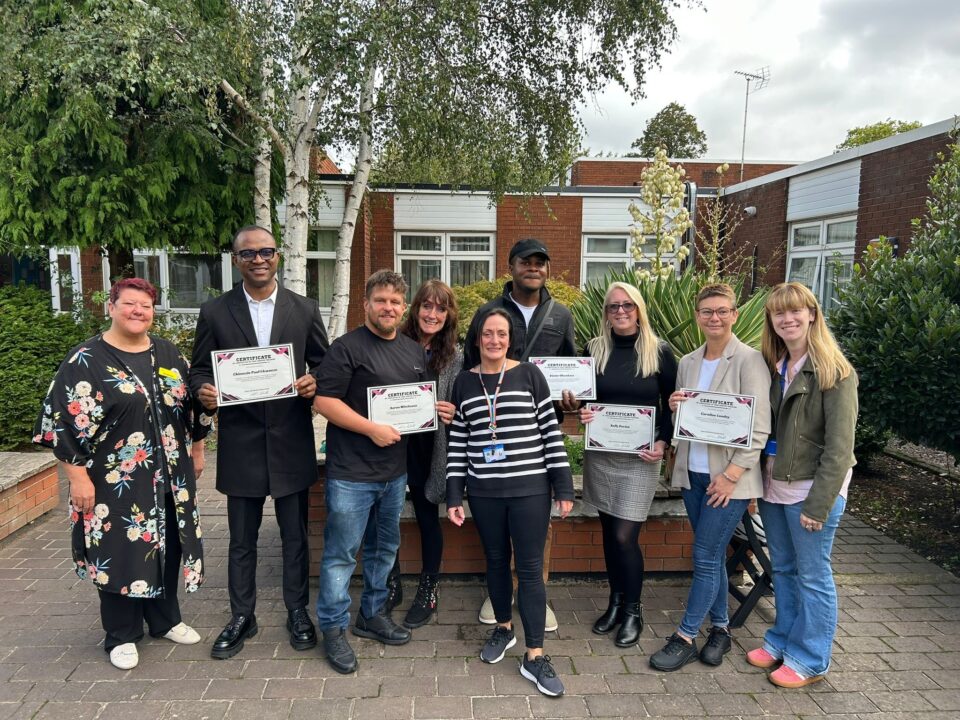
New Beginnings held a coffee morning on 18 September to celebrate recovery milestones and mentor graduation.
Guest speakers shared their recovery journeys with the group and Aspire mentors, who completed their course to become a fully qualified mentor graduated and were presented with their certificates.
Elly Sanchez said:
“People in recovery often find strength and healing in sharing their stories, which can be both transformative and empowering. By recounting their journeys, individuals not only reflect on their personal battles with addiction, mental health challenges, or other struggles, but they also inspire and offer hope to others facing similar difficulties.
“These narratives often highlight the pivotal moments that led to their decision to seek help, the hurdles they overcame, and the support systems that played crucial roles in their recovery. Through storytelling, people in recovery can foster a sense of community and connection, reminding others that they are not alone in their struggles. Furthermore, these stories can challenge societal stigmas and misconceptions about recovery, encouraging a more compassionate and understanding approach to those working towards healing.”
If you or someone you know is experiencing drug or alcohol issues, please visit the drug and alcohol service and search for drug and alcohol services or ring 03000 213 900.
British Medical Journal publication for Noma
Huge congratulations to Nomalanga (Noma) Makhanda on the publication of her inspiring article, “Leading with Purpose: Strategic Advocacy in Action,” in British Medical Journal Leader.
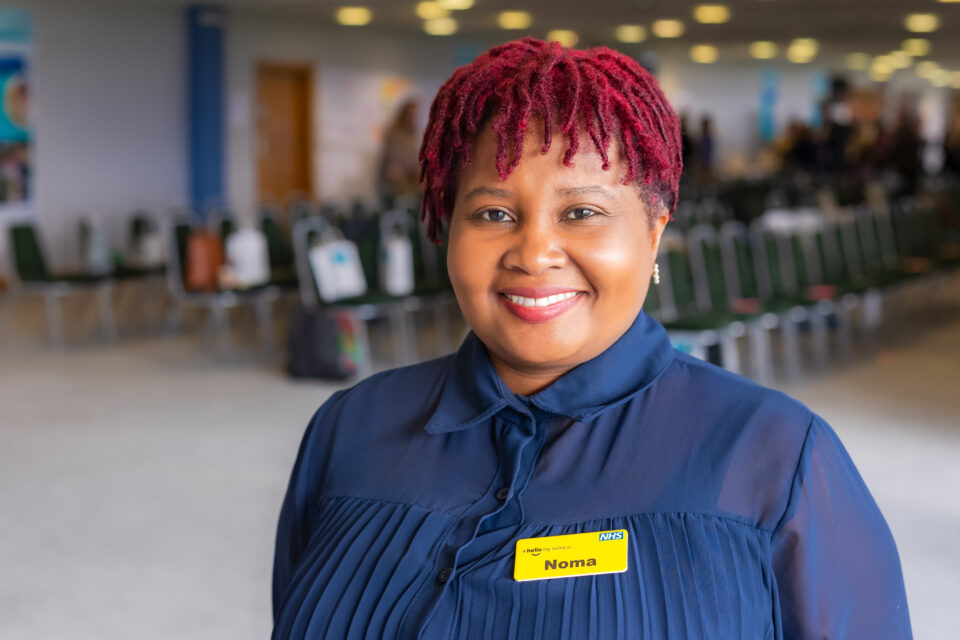
Co-authored with Malany Kalicharan, Noma reflects on her voluntary leadership role in the Chief Allied Health Professions Officer Black, Asian and Minority Ethnic Strategic Advisory Group. She explores how purpose driven leadership and strategic advocacy can influence change by amplifying underrepresented voices, shaping equitable policy, and driving inclusion.
The article explains adaptive and intersectional leadership frameworks, offering practical insights into how collaboration, persistence, and authenticity can create lasting impact.
As we celebrate Black History Month, Noma’s work stands as a powerful reminder that black leadership is not only about representation, but transformation. Her contribution honours the legacy of those who paved the way, while actively shaping fairer, more inclusive systems today. This work directly links with promise 26 promoting inclusion.
Read the Noma’s British Medical Journal publication.
Creating calming outdoor spaces for patients
As part of our commitment to providing high-quality, therapeutic care, and we are looking at improving our inpatient ward gardens to create calm, accessible spaces that support the wellbeing of our patients.
Outdoor environments play an important role in both the physical and mental health, helping to reduce anxiety, lower stress, and promote healing. By giving patients, a tranquil space to relax, reflect, and connect with others, will help to enhance their overall experience during their stay with us.
Our trust’s strategic priorities for 18 to 23 focus on providing exceptional, bed-based therapeutic care within environments that promote dignity, calm, and comfort.
Our garden improvement plans take a holistic approach to care, focusing on comfort, accessibility, and sensory experience. Designs include wheelchair-accessible pathways, safe, non-slip surfaces, and flowing layouts with seating and raised planting beds for ease of use. Planting schemes will feature colourful, fragrant flowers, ferns, grasses, and small trees such as Acers to create movement and calm.
We will keep you informed of our plans, however in the meantime, if you need any information, please contact Steve Forsyth, Chief Nurse on steve.forsyth1@nhs.net.
Women’s Network leadership appointments
We have 2 new appointments to our Women’s Network.
Victoria Takel is new Chair and Kim Shilomboleni is the new Vice Chair.
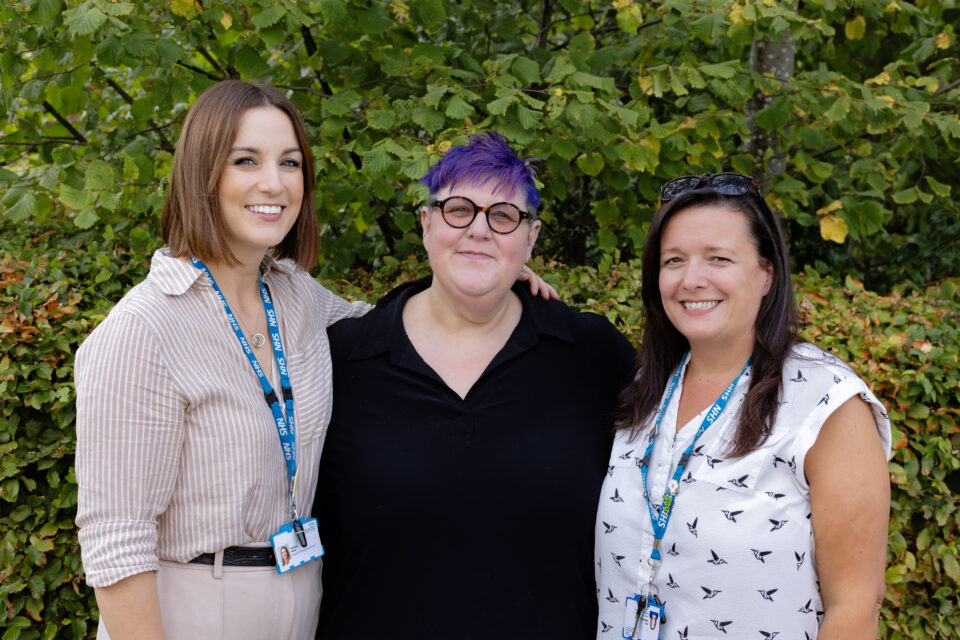
Victoria and Kim bring a wealth of experience, passion, and commitment to advancing the visibility, voice, and development of women across our organisation. Their leadership will help to shape the future direction of the network, ensuring it remains inclusive, dynamic, and impactful.
Over the coming months, you can look forward to:
- a structured programme of events tailored to professional and personal development
- guest speakers and role models who will inspire, share their experiences, and encourage open conversation
- opportunities to connect, collaborate, and contribute to the growth of the network
The Women’s Network provides a safe and empowering space for women across all roles and teams, as well as to engage with allies who want to support its aims.
Interested in joining this network you can find more information on our staff app and intranet.
Deaf College health, education and social studies students
Chloe Mawson, one of our Community End of Life Clinical Nurse Specialists for Community Palliative Services, visited the Deaf College, Doncaster in June to speak to the health, education and social studies students.
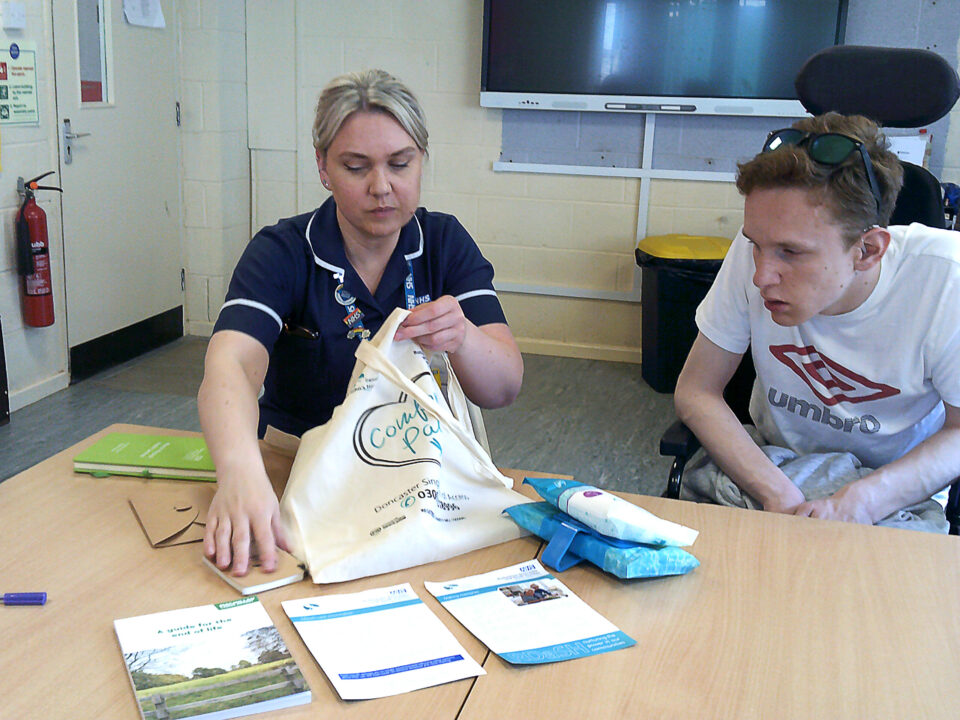
Chloe discussed her job role and experience of working in various care settings. She talked about the support that the service gives to patients and their families and showed the students the care pack that the service provides.
The students had gathered together a number of questions for Chloe prior to the session, and they enjoyed finding out about her job role. They said they found it very interesting and that they discovered that end of life care is different to how they imagined it to be. They asked a few additional questions and demonstrated a mature attitude throughout when discussing sensitive topics.
It was a very successful visit, and the school appreciated Chloe taking the time to go and visit the students.
New evacuation plans for inpatient units
Do you know what to do if your ward needed to be evacuated?
We have new evacuation plans, aimed at helping our inpatient colleagues in the case of an emergency. The plans are all stored on the intranet, in one dedicated place, making them easy to find just search patient evacuation plans.
If you work on an inpatient unit, please read the document as soon as you can, so that should an emergency take place, you already know what is expected of you.
Andrew Hayter, our business continuity and emergency planning manager, said:
“The evacuation plans cover all types of eventualities for critical emergencies which means they are incidents which need staff to leave the building quickly and go to temporary shelter. Please make sure if you work on an inpatient ward that you read the plan now so you are well prepared should we have an emergency.”
Helping the homeless
Kind-hearted colleagues are once again doing their bit to help the homeless over winter, and asking the public to get involved too.
The team at the Podiatry Foot Protection Service at Cantley Health Centre is supporting our poverty proofing Promise 6 by collecting donations of new or used walking boots, trainers, socks, coats and other warm clothes.
They are working with Changing Lives, a charity for people who are experiencing homelessness or rough sleeping, with the aim of protecting their feet.
Susan Batley, Lead Podiatrist, said:
“Even a single pair of shoes or trainers can make a big difference and change people’s lives. Homeless people and rough sleepers have far worse foot health than the wider population. This is due to lack of suitable footwear and clean socks. They also do a lot of walking in the cold and rain and not able to change their shoes causing common foot problems. All donations will be gratefully received.”
Donations can be dropped off at Changing Lives, 2 to 5 Princes Street, Doncaster, Wharf House, Wharf Road, Doncaster or at the reception in Cantley Health Centre, Middleham Road, Doncaster, DN4 6ED between 9am and 4pm.
To know more please email either:
- Susan Batley: susan.batley2@nhs.net
- Samantha Edwards: samantha.edwards3@nhs.net
- Julie Mysiuk: julie.mysiuk@nhs.net
Roll of Honour 2025, Care Home Digest Project
Well done to Laura Barker, Clinical Specialist Dietitian, for having her work recognised in the British Dietetic Association’s (BDA) Roll of Honour for 2025 for her exceptional contribution to dietetics and care standards.
Laura collaborated with dietitians across the UK to help create the first ever UK Care Home Digest. This landmark document mirrors the BDA’s established Nutrition and Hydration Digest for hospitals, mandatory standards that NHS organisations must follow. Now, for the first time, care homes have their own equivalent guidance, designed to support the nutritional health and wellbeing of residents. Laura’s work links with promise 12 of working with communities and organisations to respond to the needs of our communities.
Laura’s Roll of Honour recognition comes from nominations by colleagues, staff, and BDA members, acknowledging her “outstanding collaborative work in creating the Care Home Digest resource” and her continued dedication to advancing dietetic practice.
To find out more about the work of our dietitians please contact the team on rdash.dietetics@nhs.net.
Charity news
Community grants update
In April, we allocated grants worth £77,000 to 30 voluntary community and social enterprises, who are working in collaboration with trust colleagues to support projects across Rotherham, Doncaster and North Lincolnshire, which make a real difference to those in need, and may not benefit from mainstream support.
Each of the projects aligns with our 5 key charity missions:
- a good start (children and young people)
- our best self (mental wellbeing of patients and staff)
- powering research
- learning and development
- a good death
Here’s a look at how some of them are progressing and how they’re helping people in our local communities.
Iron Foundation funding supports a safe space for coming together in the community
North Lincolnshire’s Iron Foundation received one of our Community Grants for its Iron Hub, which is a community space within the Attis Arena, home of Scunthorpe United Football Club.
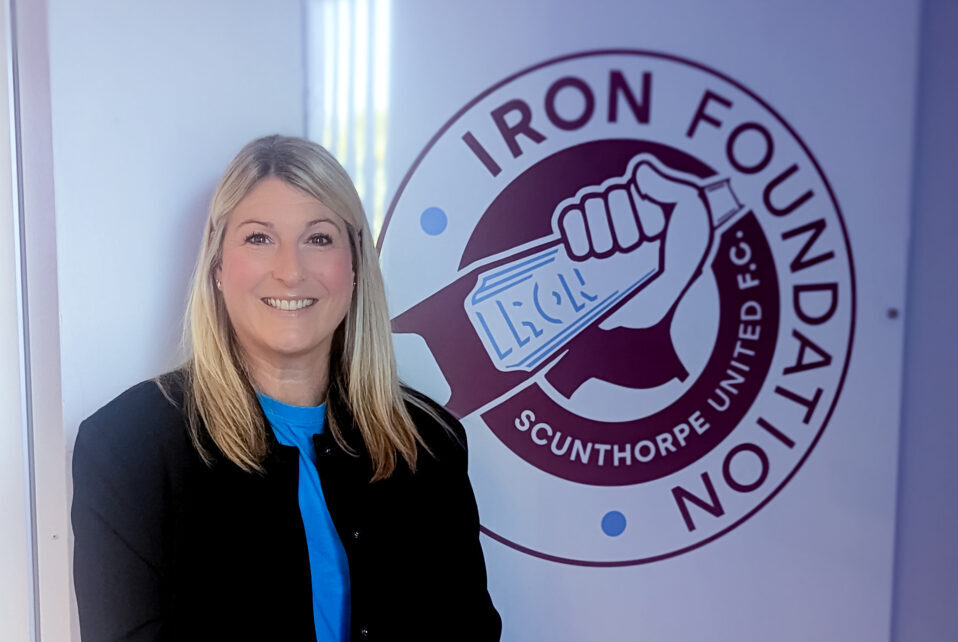
Since receiving the funding, the Iron Hub has hosted several weekly group sessions for people receiving support from the trust, new service recruitment events and staff training. Additionally, the Iron Hub has hosted patient feedback events.
Louisa Redhead, Continuous Service Improvement Manager from the trust, supported the grant application and provided some positive feedback on the use of the Iron Hub from a colleague who has been running the Dialectical Behaviour Therapy group. She said:
“Patients report that the venue is fantastic, it feels like a relaxed environment, much better facilities than some of our ‘usual’ spaces”.
Jo Schofield from the Iron Foundation added:
“The Your Hearts and Minds grant has opened conversations and collaborations with other local organisations also in receipt of the grant such as Oatridge Coaching, who used the Iron Hub to deliver the Grief training that was funded through the grant.”
The Iron Hub hosts a range of groups through its partnerships across North Lincolnshire, such as the local authorities Healthy Lifestyle programmes: Why Weight? And Smoking Cessation. The Blue Door host their team meetings in the Iron Hub, and the Sporting Memories Club meets there every week.
If you are interested in using the Iron Hub, please contact enquiries@ironfoundation.co.uk for more information.
Wellbeing walks keep people moving in Rotherham
Another Community Grant is funding “Wellbeing Walk and Talk” which aims to reach those living in isolation and reduce mental health problems by breaking down the barriers to accessing social interaction in the form of a local wellbeing walk with transport.
Megan Wylde from Memo Fitness, community interest company (CIC) told us:
“This initiative seeks to address those who struggle to find social settings in which they can access.
“We know from community engagement that transport is a huge barrier to older and less able people accessing activities and through this project and thanks to Your Hearts and Minds and Rotherham Community Trust finding, we do just that.
“All the walks are made completely accessible through the added availability of transport, but also the routes are intrinsically planned to make them completely accessible for all abilities.
“They are all planned to follow good paths, no longer than 5km, with limited inclines, and without barriers such as styles, and are led by an experienced and qualified walk leader, which sets confidence in people right from the meet.”
Here’s some wonderful feedback from group members, when asked what being a “Wandering Warrior” means to them:
“An avenue enabling me to enjoy the outdoors with like-minded people. This is100 percent true for me, as without you Megan Wylde, I simply cannot get out being a young widow.”
“For me, it’s respite as I feel I’m always with mum meeting her needs.”
“Walking in a group has provided a new social connection which has led to my meeting some lovely like-minded people and new friends. I have discovered new walks in places I would never have gone before.”
“I enjoy the company and don’t feel lonely or isolated. The walking group now forms part of my routine and is something I look forward to every week.”
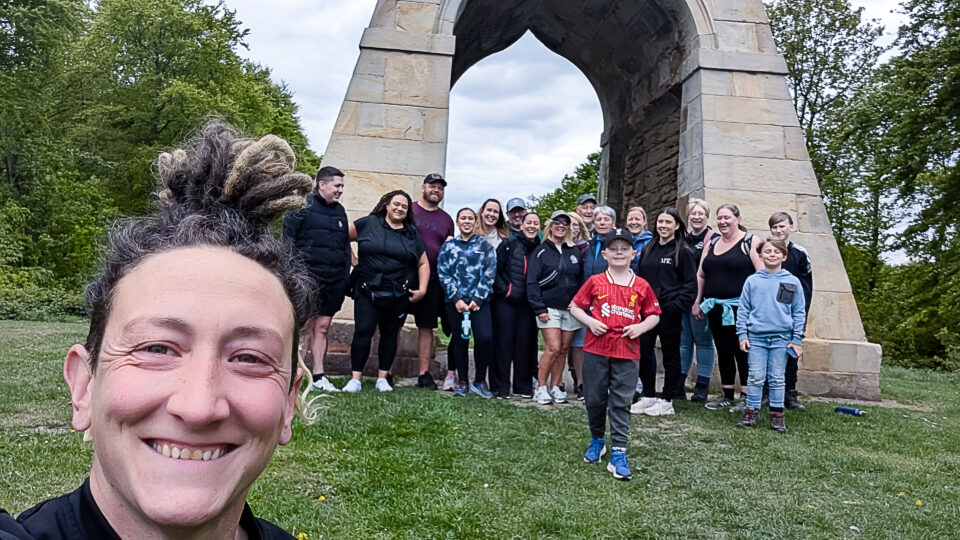
Our Great North runners lace up for a good cause
A massive thank you to all those who took part in this year’s AJ Bell Great North Run on behalf of Your Hearts and Minds Charity.
Their dedication, training, and determination (as well as all those blisters) have truly paid off, together they raised an incredible £6,940.
Every single pound raised goes directly towards supporting our Therapy Pool Campaign and St John’s Hospice. Thank you for stepping forward, lacing up, and making such a difference to our community.
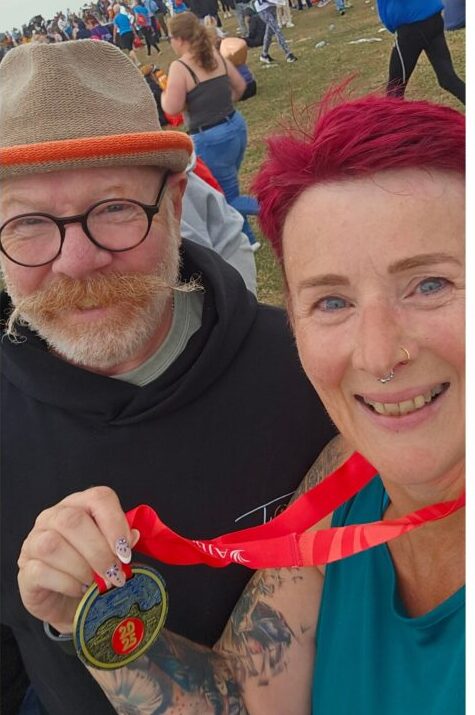
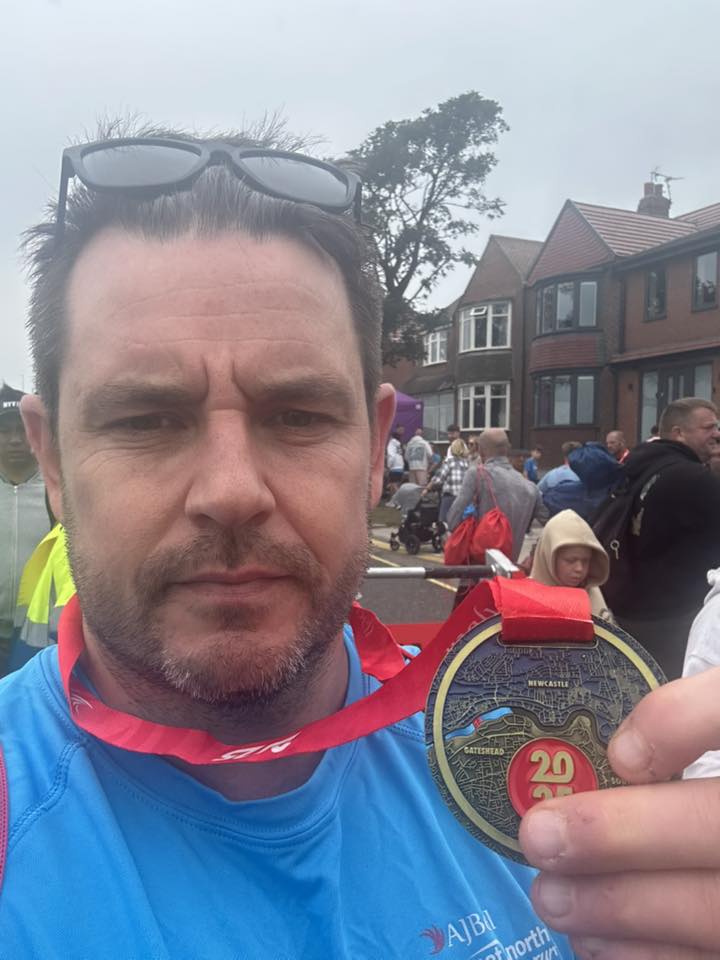
24 Peaks challengers rise to the challenge
A massive thank you to our amazing team of five challengers who took on one of the UK’s toughest 24-hour adventures, the Lake District 24 Peaks Challenge.
Battling tough weather in June, they kept pushing and raised an incredible £1,705 for Your Hearts and Minds
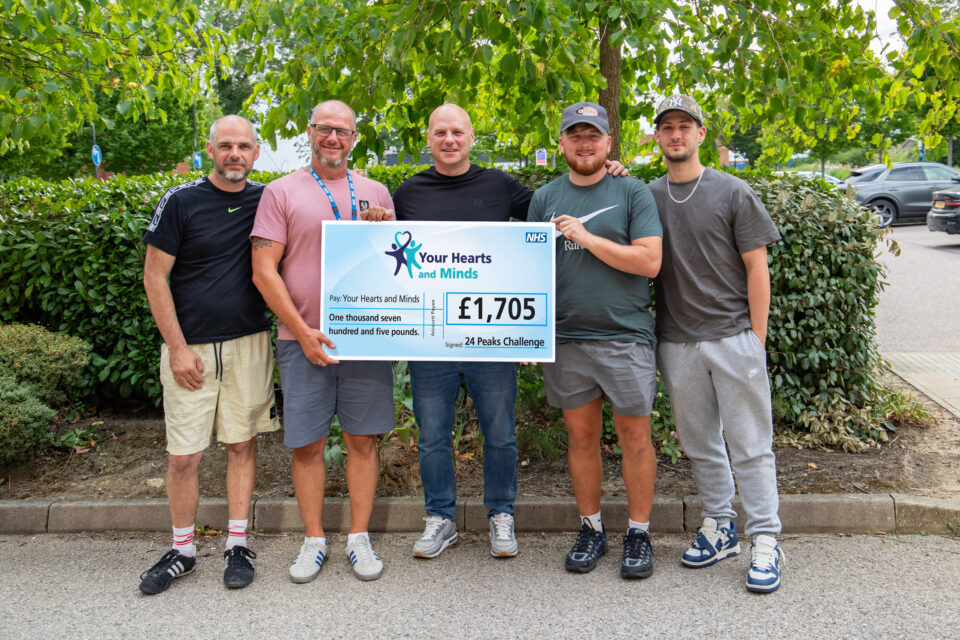
Diamond Activity and Therapeutic services therapy pool appeal news
Brass Band strikes a chord for charity
A big-hearted brass band is set to perform a special fundraising concert in Doncaster on Sunday 23 November in aid of our Therapy Pool Appeal.
The Dodworth Colliery MW Brass Band, which proudly celebrates 187 years of music-making this year, regularly performs across Barnsley and South Yorkshire. In November, however, the band will travel to St Peter’s Church on Warmsworth Road to support Your Hearts and Minds Charity, which is working towards an ambitious £250,000 target.
The funds will go towards transforming the 29-year-old therapy pool at the Diamond Activity and Therapeutic Centre in Balby, which is run by the trust.
For Band Secretary and Bb Bass player Morag McKay-Ellison, the cause is particularly close to heart. In her role as Team Manager at the Diamond Activity and Therapeutic Services, she has seen first-hand the difference the pool makes for clients who have physical and learning disabilities.
She explained:
“Water therapy is a vital part of the treatments we offer. The calming effect of the warm water eases pain, strengthens muscles, improves fitness, and promotes wellbeing.
“Having a thoroughly modern new pool and enriched sensory environment will greatly help us to provide a wider range of therapeutic support to a larger number of clients, their families and to the wider community.”
The Sounds of Brass concert promises an uplifting evening of brass music while supporting a project that will make a lasting difference for people with physical and learning disabilities in Doncaster and beyond. Tickets are on sale now via:
- Phone: 07598 951 484
- Email: mail@dodworthcollieryband.co.uk
Or by contacting the Diamond Centre and 2 Jubilee Close reception on the Tickhill Road site, Monday to Friday.
Dates for your diary
Following the success of the Diamond Activity and Therapeutic Service’s Summer Fayre in August, we’ll be doing it all over again on Saturday 29 November. With a whole host of fantastic stalls, a tombola and raffle from 11am.
Support our Care for a Cuppa event
Our Learning Disabilities team will be busy baking home-baked treats ready for their Care for a Cuppa fundraising event at the Wellbeing Café, between 10:30am and 1pm on Monday 1 December, so please give them your support.
Are you up for a challenge in 2026?
We already have people signing up for our charity challenges for 2026, so don’t miss out. Here’s what we already have organised…
Great North Swim 2026
We’re excited to share that we have three swimmers already signed up for The Great North Swim 2026, a spectacular weekend that brings thousands together for open water action, community spirit, and the stunning backdrop of the Lake District.
Whether you’re dipping your toes into your first open water swim or taking on the challenge of a 10km, there’s a place for you in the water.
Yorkshire Three Peaks
Join us on 16 May for the Yorkshire Three Peaks Challenge and tackle Pen-y-Ghent, Whernside, and Ingleborough in just one day, all while raising vital funds to support our charity.
Whether you’re looking for a personal challenge, a team adventure, or a way to give back, this is an unforgettable experience you won’t want to miss.
Want to know more? Please email our Fundraising team rdash.your-hearts-and-minds@nhs.net.
Hospice news
Family donates funds to say thank you to hospice
A Warmsworth family has donated £1,500 to say thank you for the care it provided for their loved one.
Friends and family of Andrea Hutt, who passed away on 27 June, aged just 58, chose to donate the proceeds from her funeral collection to St John’s Hospice in Balby in appreciation for all the care and support she received during her time there.
Andrea’s husband Roger visited the Hospice to donate the funds raised, and paying tribute to the hospice team he said:
“Andrea celebrated her 58th birthday while she was at the hospice and the whole team there were fantastic, they made it such a special day for us all.
“They helped us create special memories we will treasure forever, so this is our way of saying thank you and giving something back.”
He added:
“Andrea was a very special lady, loved by so many people.
“Even during her time in the hospice, she kept positive and always had a smile and a joke with the staff when they were looking after her.
“I’m a huge rock music fan, but the hospice team were my rock when I needed their support, so we will continue to support the charity and raise awareness whenever we can.”
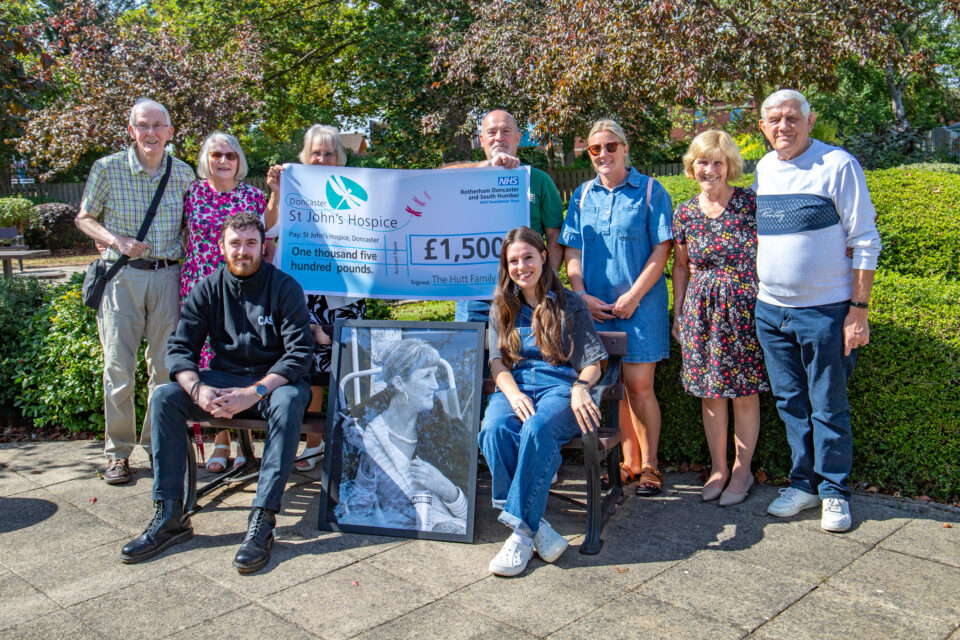
Sprotbrough Scarecrow Festival raises thousands for hospice charity
We’ve been given a £4,141.70 boost thanks to wonderful support from the Sprotbrough village community.
St John’s Hospice received the much-needed funds from the proceeds of this year’s annual Sprotbrough Scarecrow Festival on Saturday 6 and Sunday 7 September, which this year saw a record 60 scarecrows taking part around the picturesque village.
The festival, which has now raised almost £20,000 for local charities, has been running for nine years, and has had “Mrs Scarecrow” Vivienne Jenkinson at its helm, along with a dedicated team of volunteers who work effortlessly between April and September, organising the event, and working with local businesses and St Mary’s Church to ensure each year it gets bigger and better.
Vivienne said:
“This is my last year working on the Festival and I’d like to say a huge thank you to all the team for their support over the years, and to all the Sprotbrough residents and businesses for their generosity and creativity.
“This truly is a great example of a local community coming together to have fun and do something positive to raise funds for so many worth local charities and also brings so many visitors to our village.”
St John’s Hospice Fundraising Manager said:
“Thank you to the team and all the residents of Sprotbrough for choosing St John’s Hospice this year and donating such a significant amount of money.
“The creativity and effort that went into all the different entries was impressive and we were delighted to display our own scarecrow ‘Mary’ at the event, which was created by patients in our day therapy unit at the Hospice.”
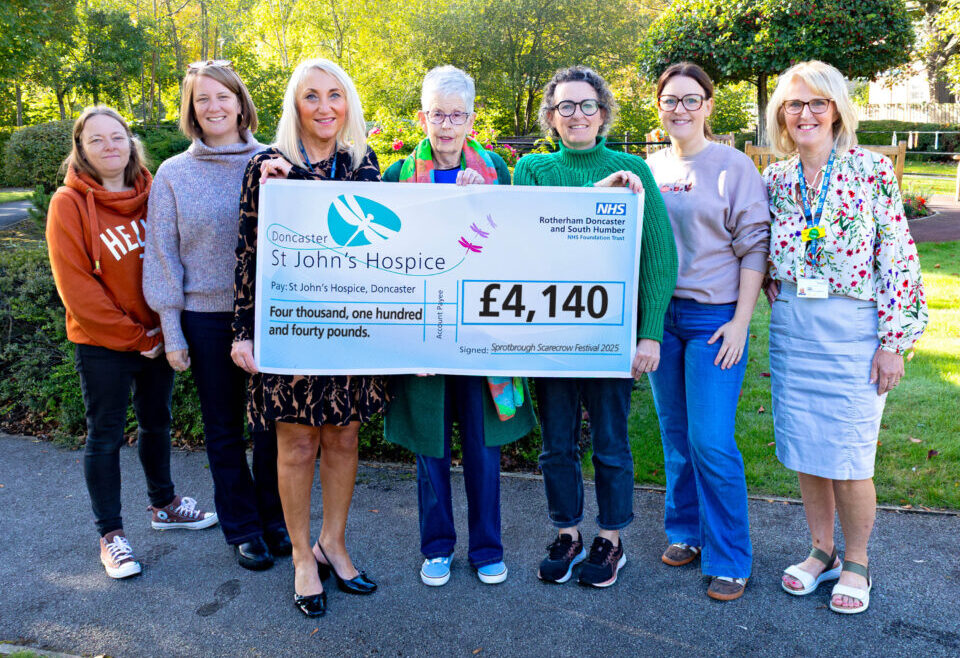
Well done and thank you to Elizabeth
Well done to our longest serving hospice volunteer Elizabeth Taylor (71) for raising £337.50 on her sponsored walk from the Mansion House to the hospice on Thursday 18 September for our hospice replicating a fundraising feat she first completed over 34 years ago.
Elizabeth still volunteers her time both in the Hospice and at our fundraising events, as well as holding coffee morning and tabletop sales to support our charity. She said:
“What many people don’t know is that after all these years the Hospice still needs to raise over £680,000 every year, so I did my walk all over again to continue to support the team there.”
Fundraising Manager Jenny Baynham said:
“Elizabeth has always been a fantastic supporter. From the original fundraising with Doncaster Cancer Detection Trust, to becoming a volunteer and helping at fundraising events, she knows first-hand the important role that the charity plays in the running of the Hospice.”
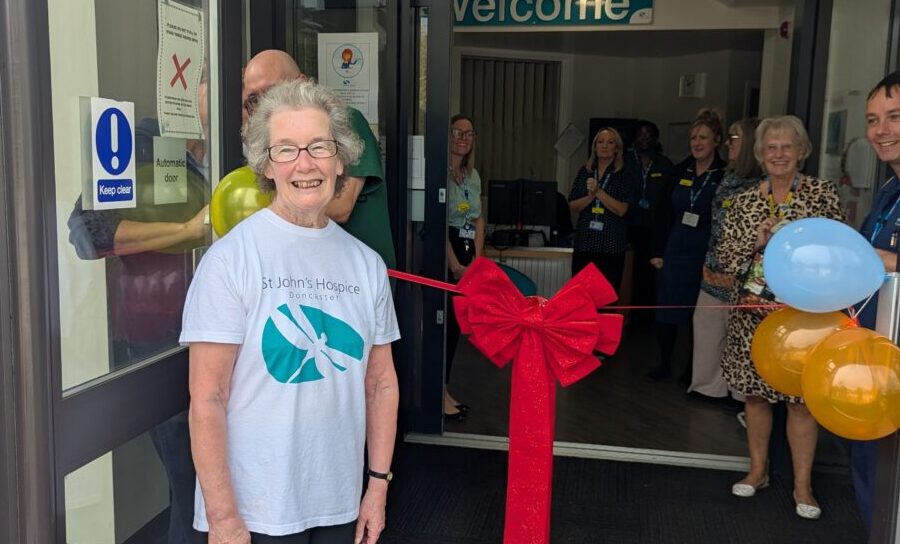
Fashion shows raise funds for Doncaster’s hospice
A Blaxton-based boutique has raised an impressive £2,106 for St John’s Hospice through a series of seasonal fashion shows.
Womenswear retailer Tiffany Fashion, which has been part of the Doncaster community for almost 50 years, hosted the events to promote their latest collections at Walker’s Nurseries, generously donating 100% of ticket proceeds to the hospice.
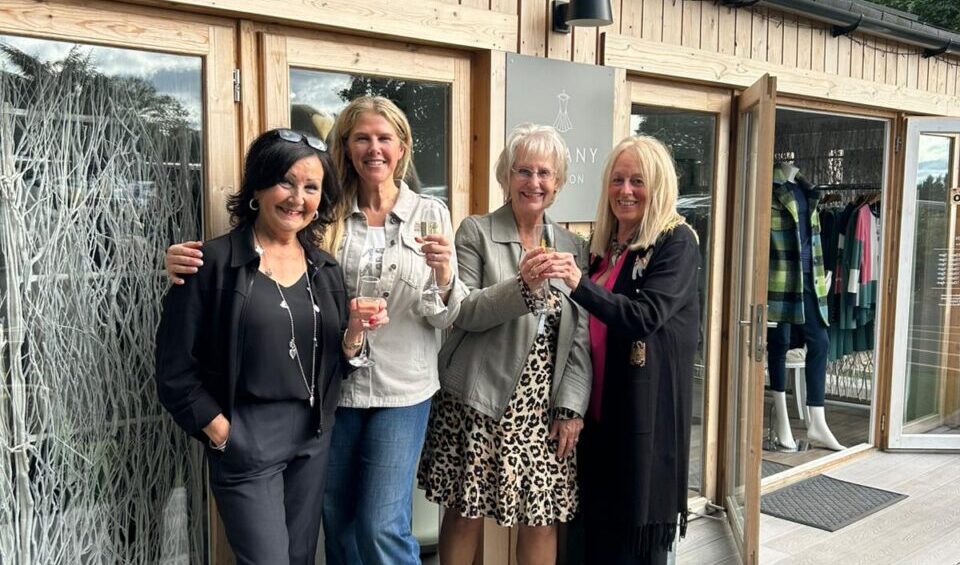
£1,100 boost for hospice after UK Three Peaks challenge
Doncaster man Craig Westmoreland has completed the iconic UK Three Peaks challenge to raise vital funds for our hospice that has cared for several of his family members and a close friend.
Despite having no hiking experience and doing no training, Craig set himself the challenge of scaling Scafell Pike, Snowdon, and Ben Nevis, also known as the UK Three Peaks challenge, in memory of his best friend Gavin, who was cared for by us. Craig’s mother, Ellie Watson, also worked at the hospice, and other family members have received our support over the years, so Craig felt he had a close connection.
Craig raised money through his JustGiving page, Facebook, and by placing donation pots in his local pub in Rossington, he raised a total of £1,141 for the hospice.
Fundraiser Maureen Harwood said:
“Thanks to Craig’s incredible effort and dedication, the funds raised will go toward providing care and support for patients and their families during some of the most difficult times in their lives.”
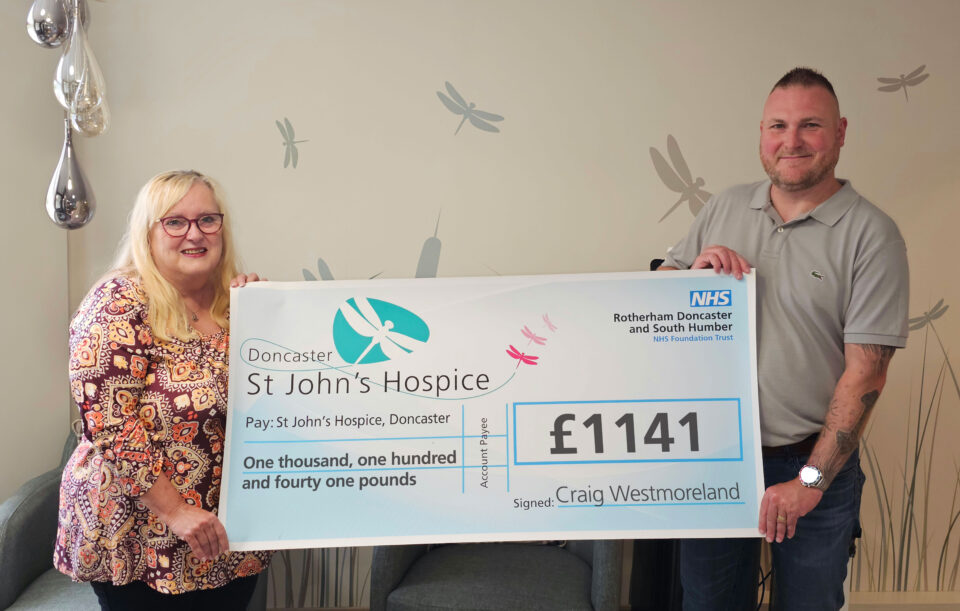
We’ve launched our Light up a Life campaign
We’ll hold our third annual Light up a Life ceremony on Wednesday 3 December.
The fundraising event will return this year at the new venue of Alder Grove Church in Balby. The ceremony, which starts at 6pm, will include carols, readings and musical performances.
Fundraising Manager Jenny Baynham said:
“Light up a Life is a nationwide campaign, run by the hospice movement to help families and friends to come together to remember and celebrate the lives of lost loved ones.
“Our event is open to anyone who has lost someone, not just those whose loved one was cared for by the Hospice. Anyone who would like to dedicate a light and see it shine bright, can donate in memory of their loved one. Each light represents a life and will remain lit throughout the Christmas period on our Tree of Lights.”
Refreshments and hot snacks will be available before and after the ceremony.
For more information and to register for the Light up a Life event, please visit the Your Hearts and Minds events or contact the Fundraising team (Monday to Friday) on:
- Phone: 0300 021 4871
- Email: rdash.stjohns-hospice-fundraising-team@nhs.net
Please support our Christmas fundraising
Did you know that for every £1 spent on hospice care, 20p comes from our charity? We need your support in ensuring we raise enough funds to support this spending, so there are many ways you can support us this Christmas:
Raffle
We will be launching our Christmas Raffle in October, tickets £1 will be available to purchase and sell from our Hospice Fundraising team.
Cards
Now in stock! Choose from a variety of fantastic festive designs. Ten cards for only £4 each, so please give us your support.
Coffee morning
Join us for a cuppa, home-baked treats, a wide variety of gift stalls and our festive tombola on Friday 28 November at St John’s Information Centre, between 10am and 1pm, everyone welcome.
Afternoon tea
We’ve organised a festive afternoon tea on Friday 5 December, between 1pm and 4pm in the beautiful setting of St Catherine’s House. Tickets are just £20 per person and places are limited, so please book early to avoid disappointment.
For more information about any of our events, please email the Fundraising team on:
Your right to be heard
This is where you can get in touch about topic of interest, either work related or something else. Here are the latest questions people have sent in.
There’s a lot of talk in the news about the state of NHS finances, is our trust going to be okay?
The short answer is yes we will be okay. But to explain, the NHS since 2020 has started costing more than before, and has increased staffing, but (except for GPs) not treated more patients. Together with big rises in energy costs and other inflators, it means we need to ‘cut our cloth’ to revised and fixed budgets. The trust had a large deficit (more expenditure than income) in 2022. We have reduced that gap by two thirds since. In 2026 to 2027 we will need to make changes equivalent to about £10,000,000 from our roughly £265,000,000 budget. It won’t be easy, which is why planning has started very early. By January the Board wishes to sign off a plan for financial balance, without any of the subsidies that some trusts get (the trust currently receives £2,400,0000 of subsidy).
Jill Savoury, acting Director of Finance.
I have heard that we are going to be cutting jobs in the trust. How will this affect me? When you are saying jobs may be at risk, why are we spending money on events, for example our fun day?
We need to make changes to our costs. But we will also continue to invest. For example, we will protect and increase the training budget and we will drive to meet promise 1 in relation to peer support workers and our commitment to carers. We continue to invest in wellbeing. And we will continue to work with our communities, because that is the mission of our trust. Inevitably spend should be scrutinised, as it has been in recent years, and the amount we spend on activities that do not directly provide patient care has reduced sharply since 2023. Some of our events are sponsored, for instance our annual awards process.
We employ in 2025 more staff than the trust ever has before, including more clinicians in every discipline. We are determined to be fully staffed and have reduced vacancies to below 100, in April 2025, and will reach the same point in January 2026.
It is right to say that looking at our 2026 to 2027 cost improvement plans, we will look to make some managed reductions in roles in specific departments (not trust wide). The details of those changes will be consulted on from late January, and we hope, but cannot guarantee, that anyone whose role changes can move into role within the trust or wider NHS. In late November, we have previously said (in early September), we expect to be able to be more specific about where change will come. We have already said (in April) that no further ward closures will happen in the coming three years. The planned changes would happen in practice in April and May 2026. Our changes are likely to be less than many neighbouring NHS organisations, but we recognise they are difficult and will cause both anxiety and distress. Please ask questions, share your concerns, and try not to believe rumours without verifying them!
Kathryn Lavery, Chairman.
I saw in the board papers that we may be having a new hospital. When will this be, and how will it be funded?
The trust board has considered each of the eight plans that support our strategy, so our quality and safety plan, our learning and education plan and so on. The eighth of these is our Estate Plan, which is not yet finalised: as the board papers outline. Some of that plan is already being delivered with staff moving into the Elizabeth Quarter in Scunthorpe. We are exploring options in Rotherham to create a better central base and more consulting space, for teams including Talking Therapies neurodiversity assessment and Child and adolescent mental health service (CAMHS). The plans in Doncaster are being developed, and the primary option would see us replace arguably inadequate spaces like Hazel and Hawthorn ward with purpose built facilities, in all likelihood closer to the old Loversall entrance near Windermere. Funding routes are being worked through, but we expect to dispose of quite a lot of land that is currently used by the NHS and might be better used for other purposes, like housing or education. It is likely that in about March 2026 we will have a final plan to engage colleagues, tenants and neighbours about, once we are confident the funding is in place.
Toby Lewis, Chief Executive.
Toby’s last word… facing up to racism and privilege
If you not only read this magazine, but take time to listen to our weekly video logs, you cannot have failed to notice a focus on racism in recent months. That focus is overdue, and well intentioned, but it must result in real change. And I am concerned that change is coming too slowly.
We know that the trust does not exist separate to a wider environment. The daubing of nationalist graffiti on roundabouts and takeaways, hateful comments about Jewish people made by NHS doctors online, or racist comments about global majority colleagues inside this trust, are all part of a hostile environment. An environment which leads people to question their place in our society, to make false assumptions about others, and to be fearful of being harmed, of being wrongly accused, or indeed of being themselves.
The trust’s policy since 2024 has been to not be neutral. What does that mean? It means we are not treating racism as conflict between 2 people, or a matter of degrees of offence. Instead, we take the view that things said or done that are racist, are just that, whatever the intention of the person concerned, or the reaction of the person abused. Investigations into claims of racism should always now be undertaken by someone from a global majority background. Again, why? Because this key part of our 7-point plan on racism is intended to build trust among colleagues, that racism is understood and does need to be explained. Rapport is important in an investigation and those with some lived experience will come the best able to provide that in cases of potential racism.
Let’s talk about privilege
Being believed is however only a small part of what we need to change. There has been huge effort over a long time to share an understanding of inclusion, diversity and equity among NHS employees. It is difficult to consider that anyone who has undertaken mandatory training or induction in the NHS, including at the trust, has not had time to consider and to better understand the standards needed. Racism does not arise because of, or in reaction to, immigration. Racism is about power, and it is about privilege.
So, when we gathered anyone who wished to come, to discuss racism in our trust a few weeks’ ago, in our open meeting, it was the entitlement, or privilege, that struck me most. I listened to story after story from colleagues, often from a global majority background, some who had brought their skills to this country, others who had been born here, describe how perpetrators, and those who enable perpetrators behaved as if nothing would be done.
It was inspiring to hear of one of our ward managers showing how something would be done. Just as I know that our actions last autumn, to exit some staff who had been involved in attacks on hotels, conveyed a sense of consequences. To begin to see change, and to build trust that change is coming, we need that leadership at local, as well as at corporate level. Leadership which sets clear boundaries for what is expected and what will no longer be accepted.
Let’s talk about our promise 26
The assumption is no longer here that education is the first line intervention. The trust is not simply seeking not to have racism. Our promise is to be anti-racist. What that means is that each of us needs to demonstrate a commitment to a workplace that actively calls in and calls out prejudice. Read the article titled “tackling racism within the trust: lots more work to do” for a definition of that terminology.
Education does play a part. As a white man, I need to educate myself, not wait for someone else to lead me to a better understanding. This trust has created time for all of us to learn, with our half days. So, whether it is antisemitism, xenophobia, or bigotry against people from the far east (Sinophobia), each of us needs to consider how we can know enough to make good choices to support our colleagues. Ignorance is not a defence.
The flag on the front of this edition illustrates the range of heritages in our midst. That helps us to see that we depend on diversity. Our NHS benefits hugely from the backgrounds and lived experiences of people from all faiths, and from all traditions within our communities. Our volunteers too increasingly reflect that intention.
Racism is a patient safety issue
Prachi Goulding spoke in a recent video log about the link between racism and poor care. Talked to clinicians feeling inhibited, and patients wondering whether to present for care. There is racism in the trust. We can see that on Radar and hear it from peers. All of us, especially team leaders, and line managers, need to make sure we look for it, and act on it. If you work somewhere where you feel racism is being “swept under the carpet”, I’d be keen to talk with you direct. We are making arrangements too for wholly anonymised reporting to be put into place. An external company will conduct all our exit interviews, and within that racism will be specifically examined. As we roll out our new appraisal system, line managers will need to demonstrate their active equality, diversity and inclusion efforts. These changes could be tick-box. But they won’t be because we will continue to listen to those with lived experience and to adapt our effort until we have succeeded. Succeeded in creating in our trust, everywhere, the best of what we have already in some places. Teams who welcome everyone, welcome difference, and will not tolerate prejudice.
Page last reviewed: November 11, 2025
Next review due: November 11, 2026
Problem with this page?
Please tell us about any problems you have found with this web page.
Report a problem